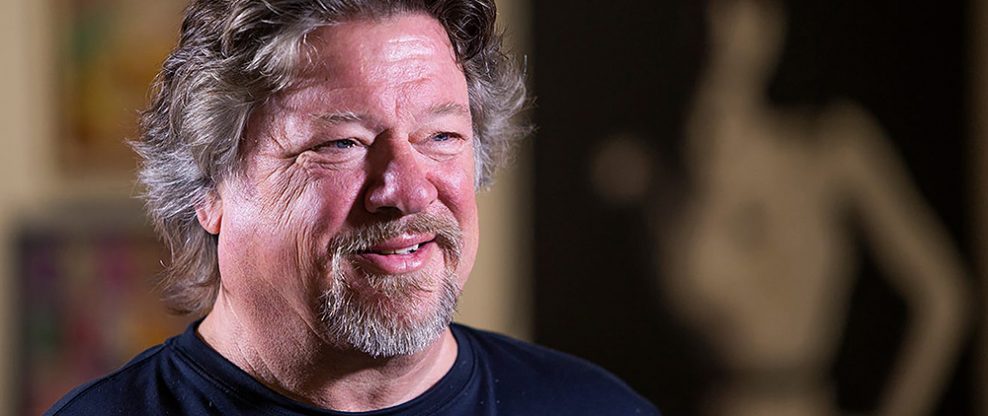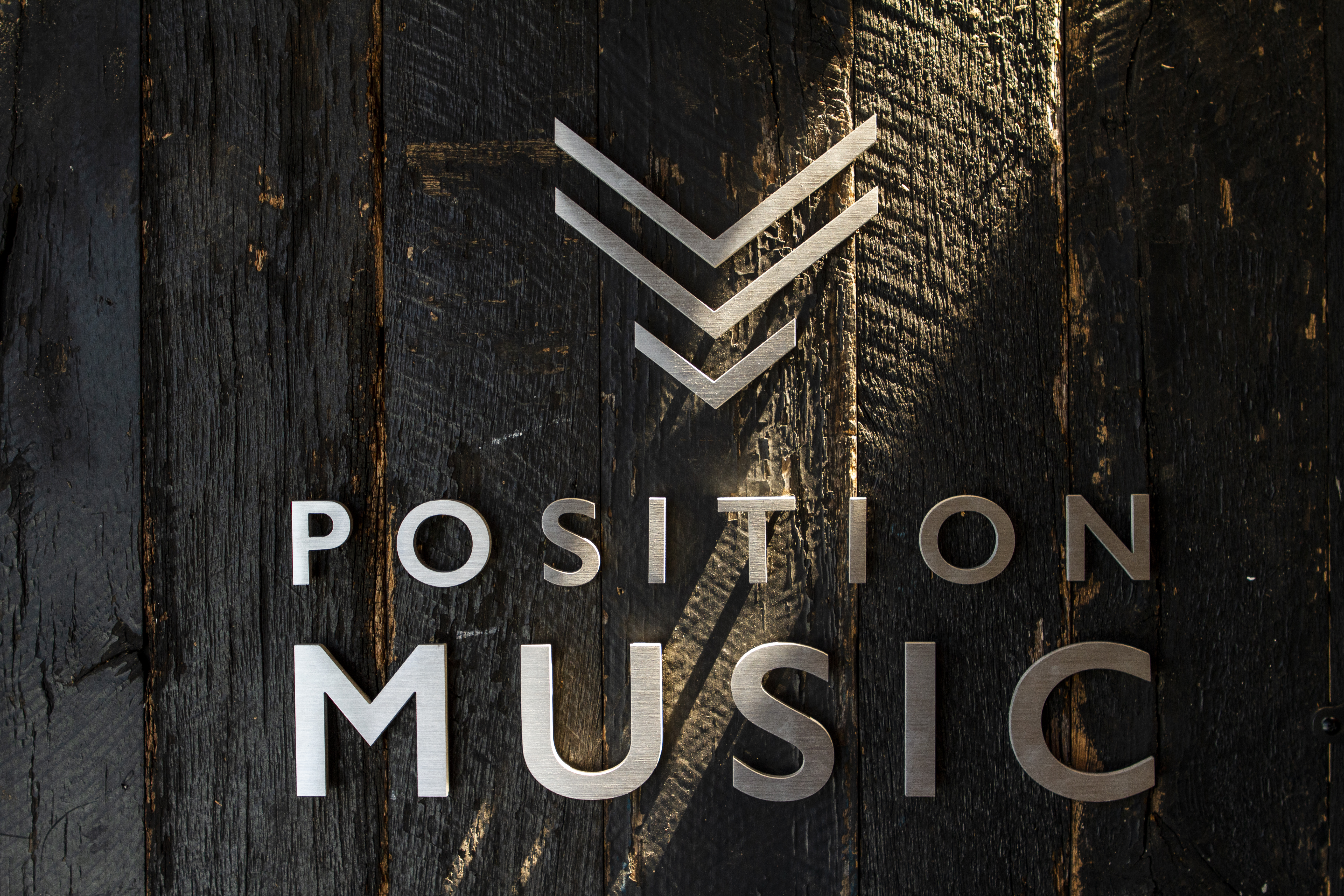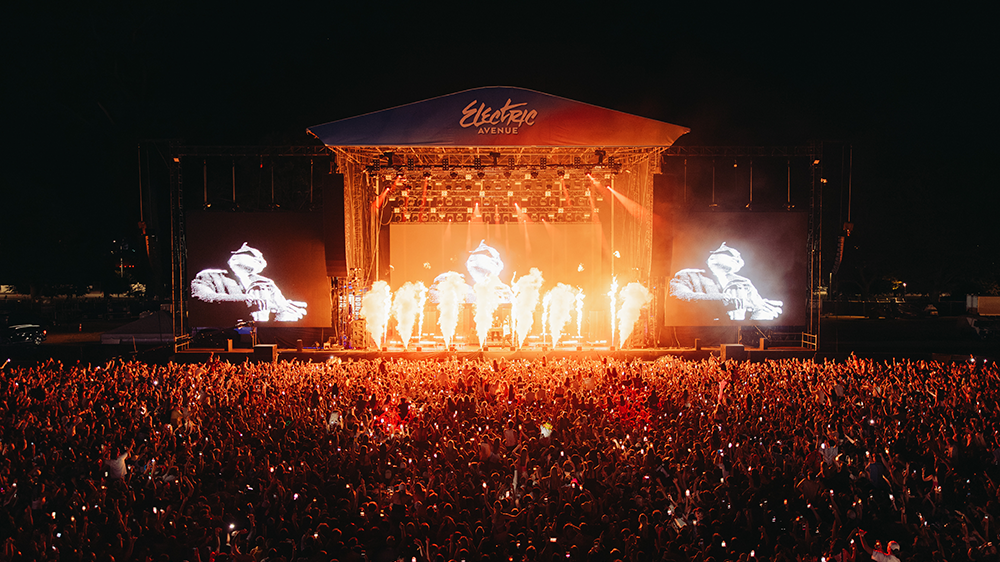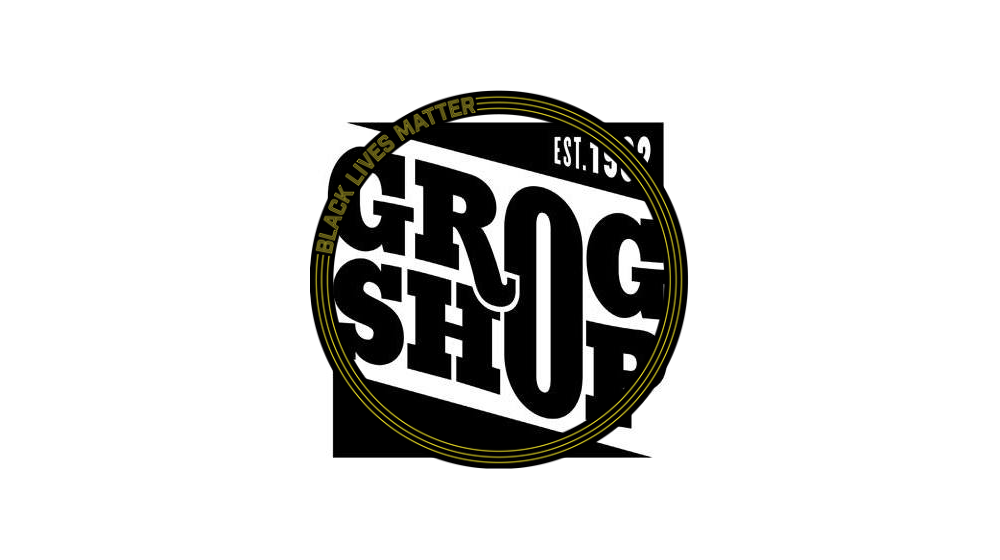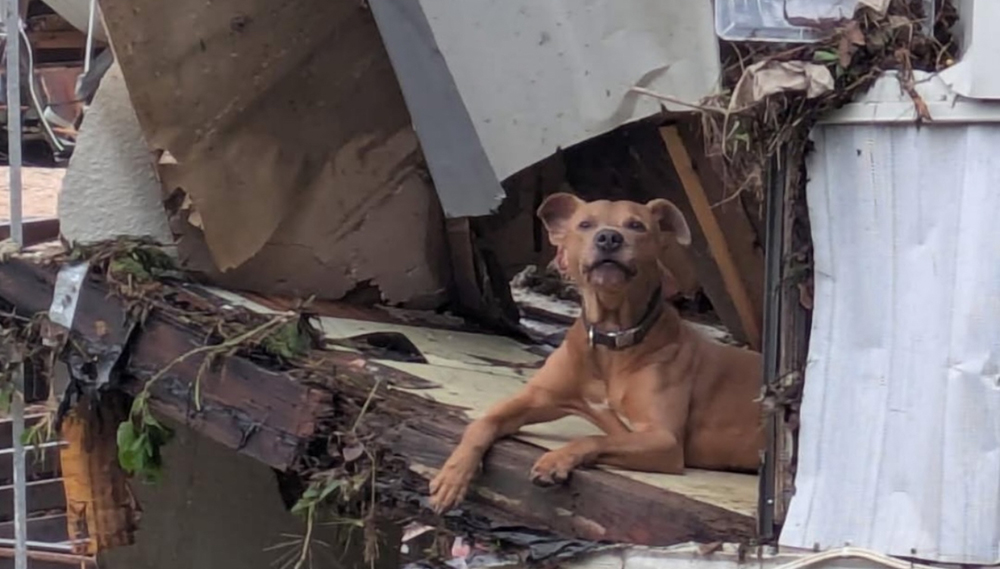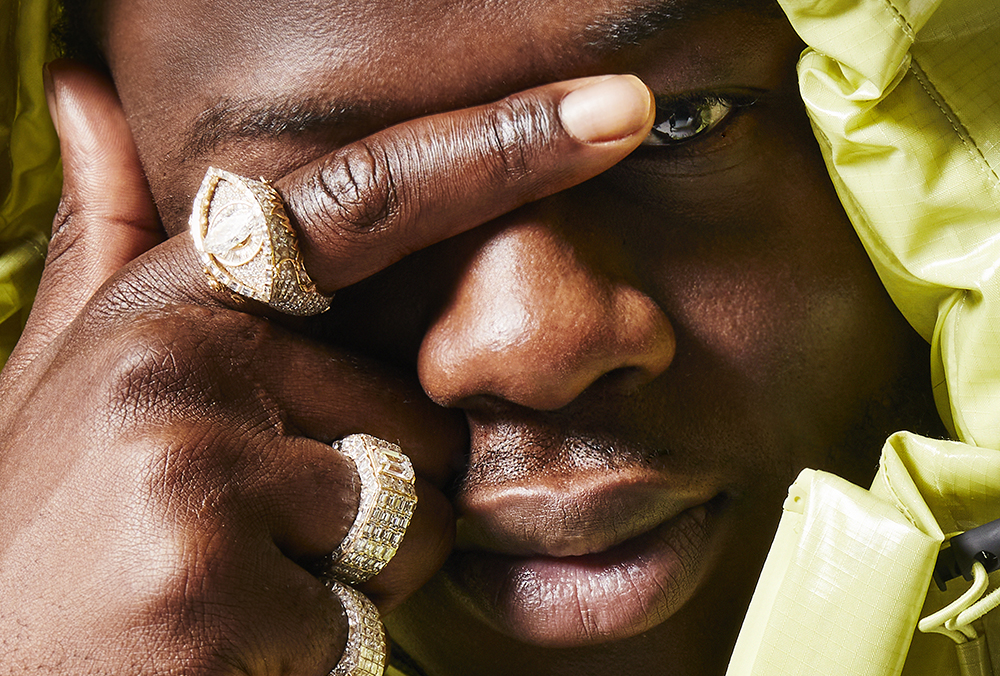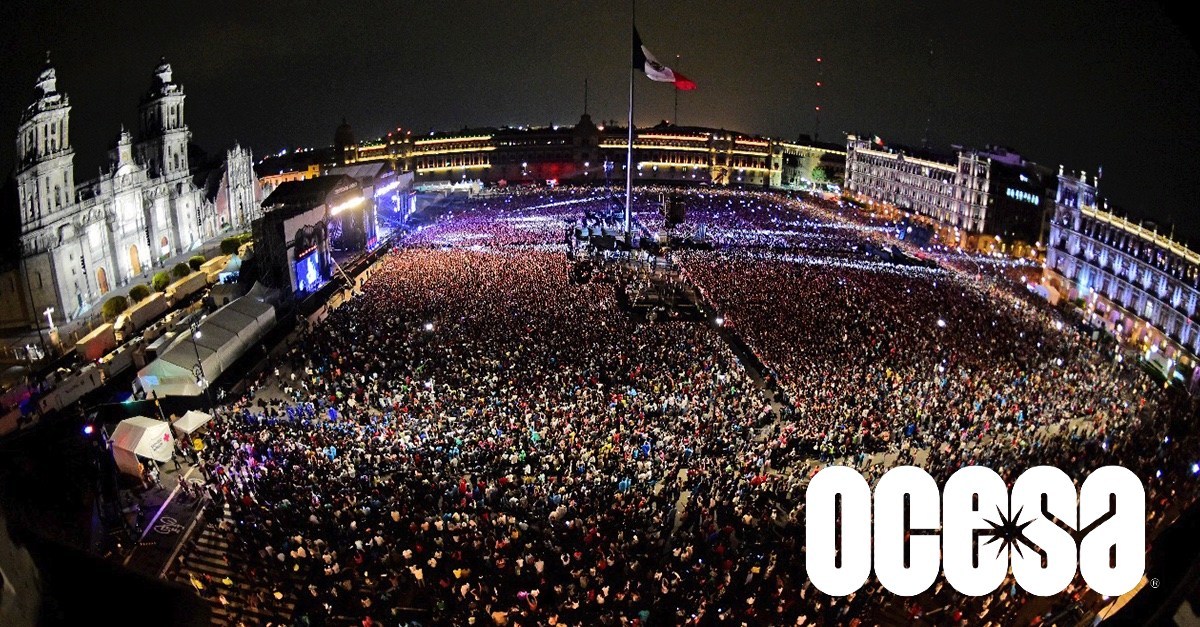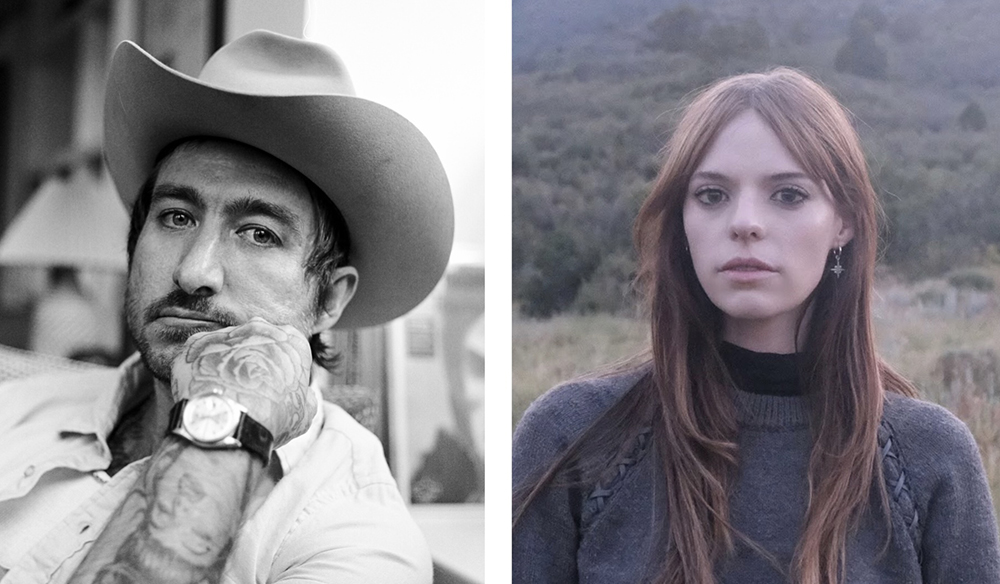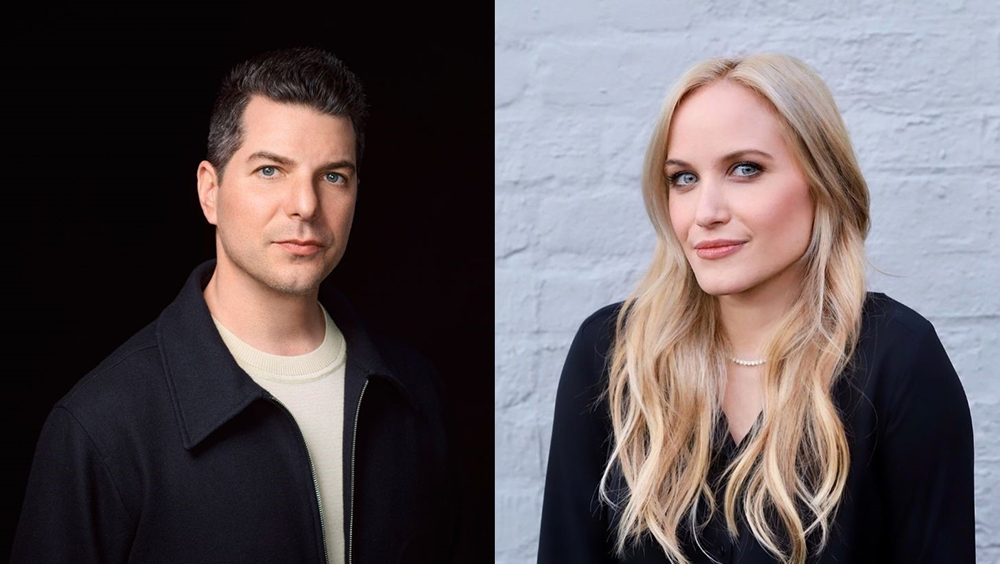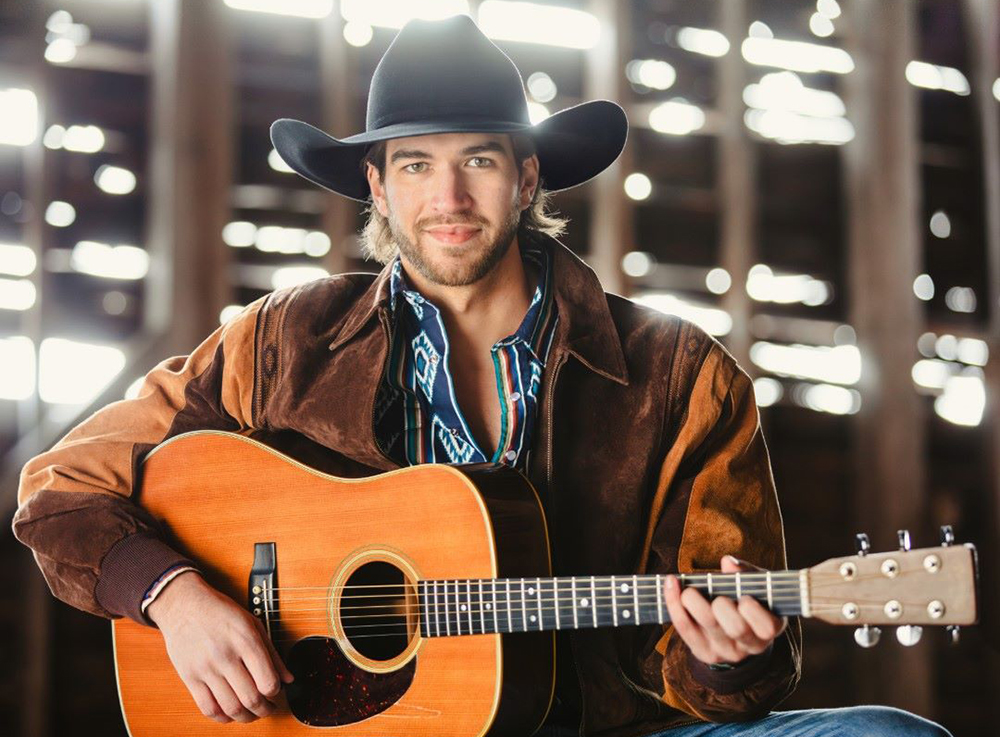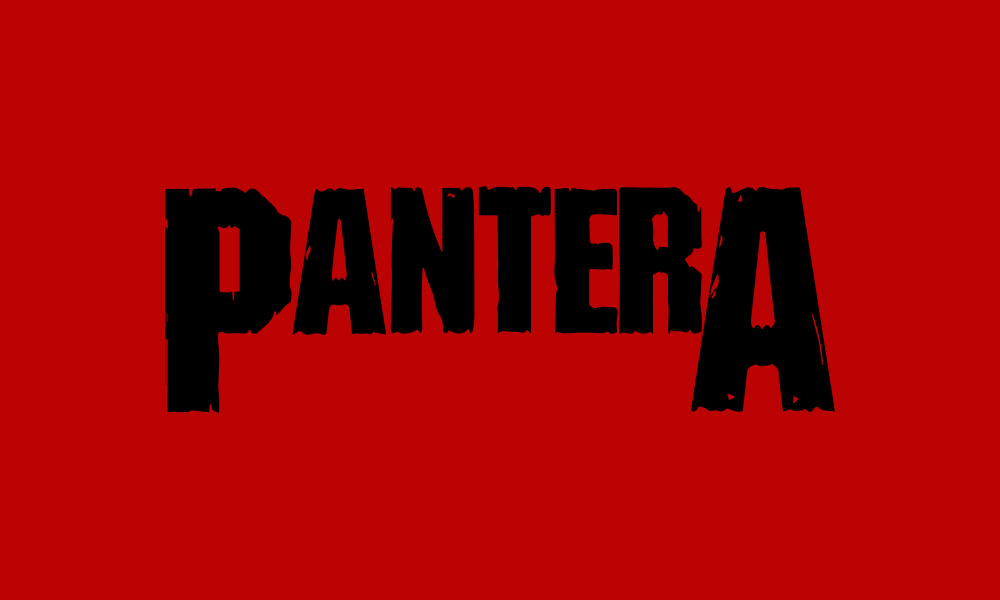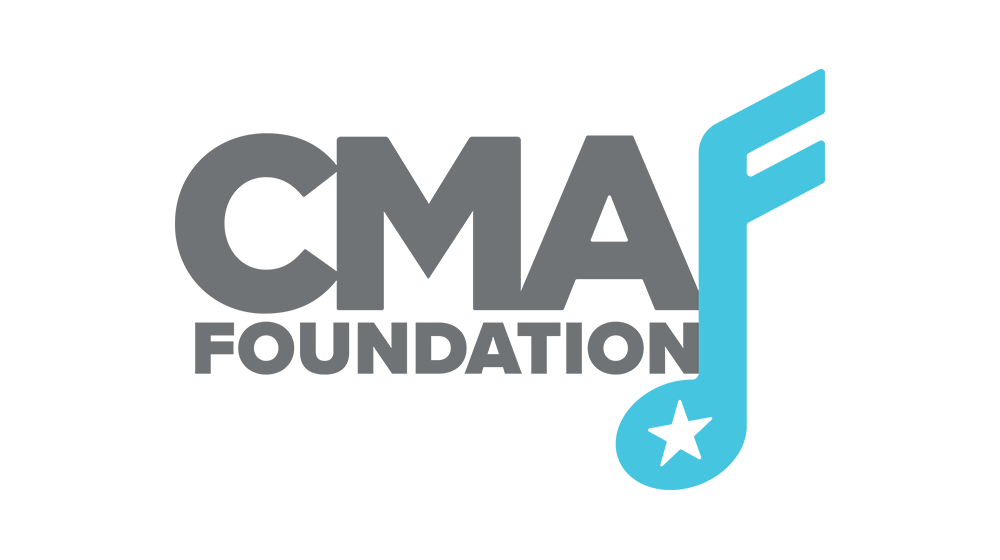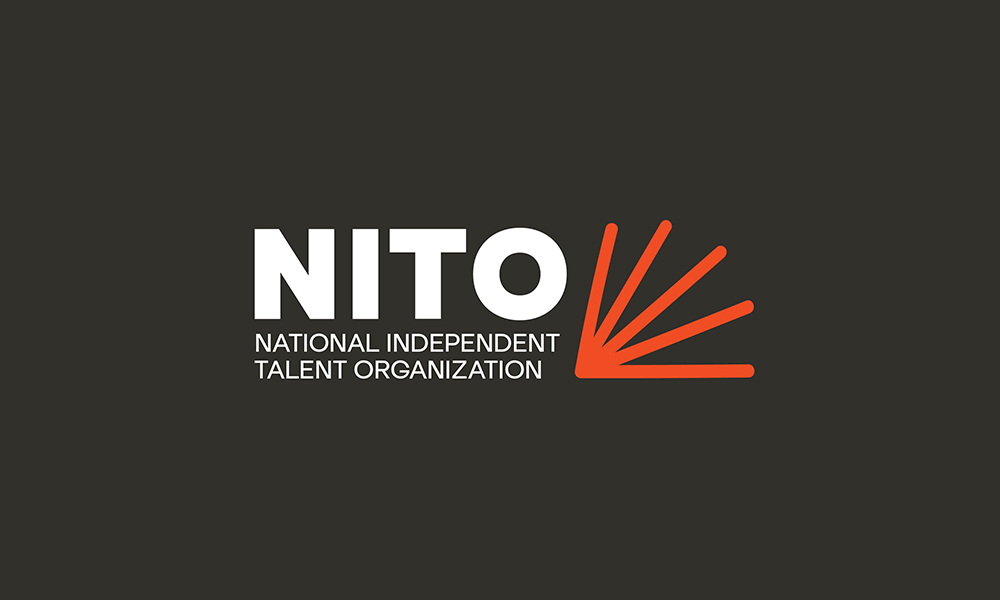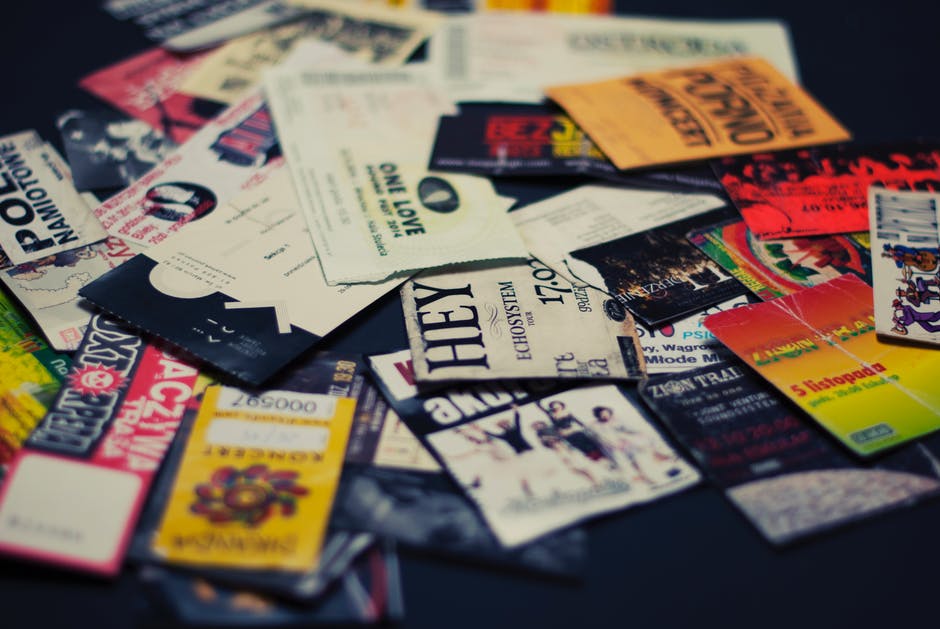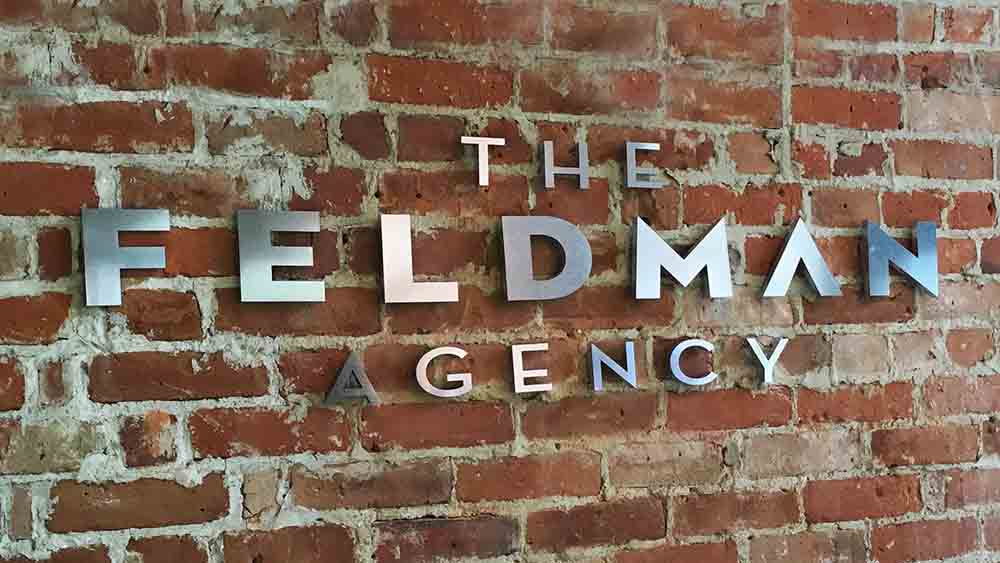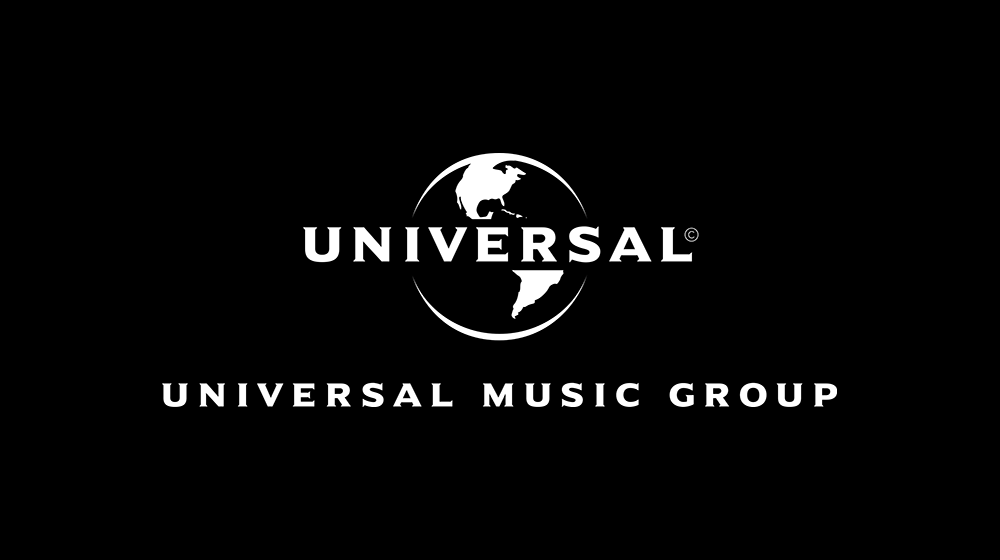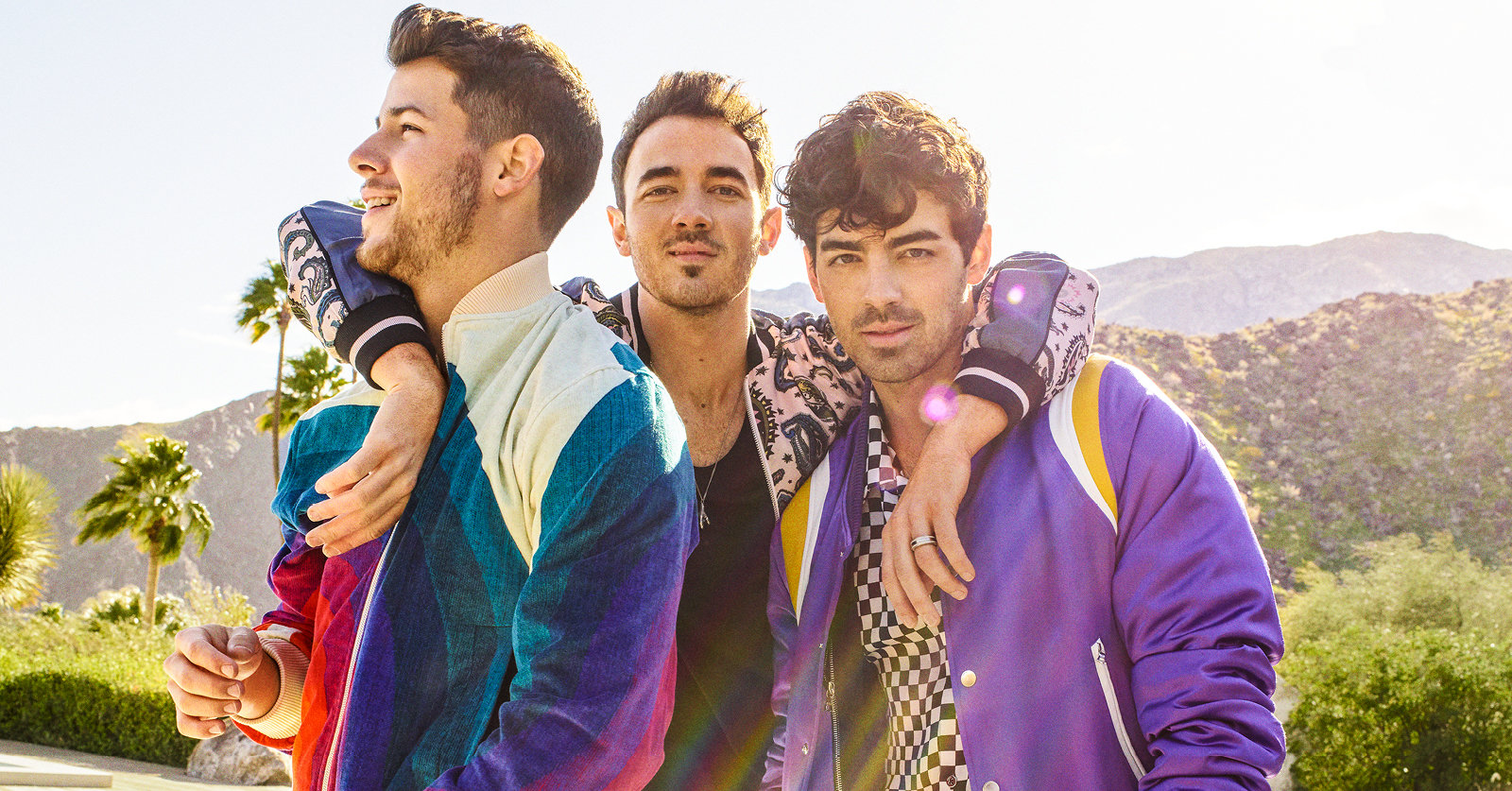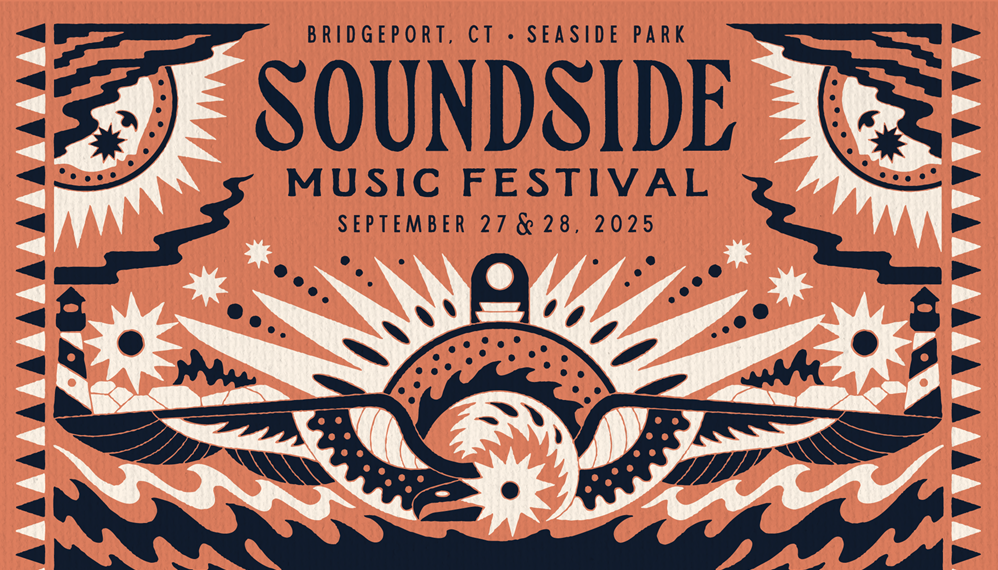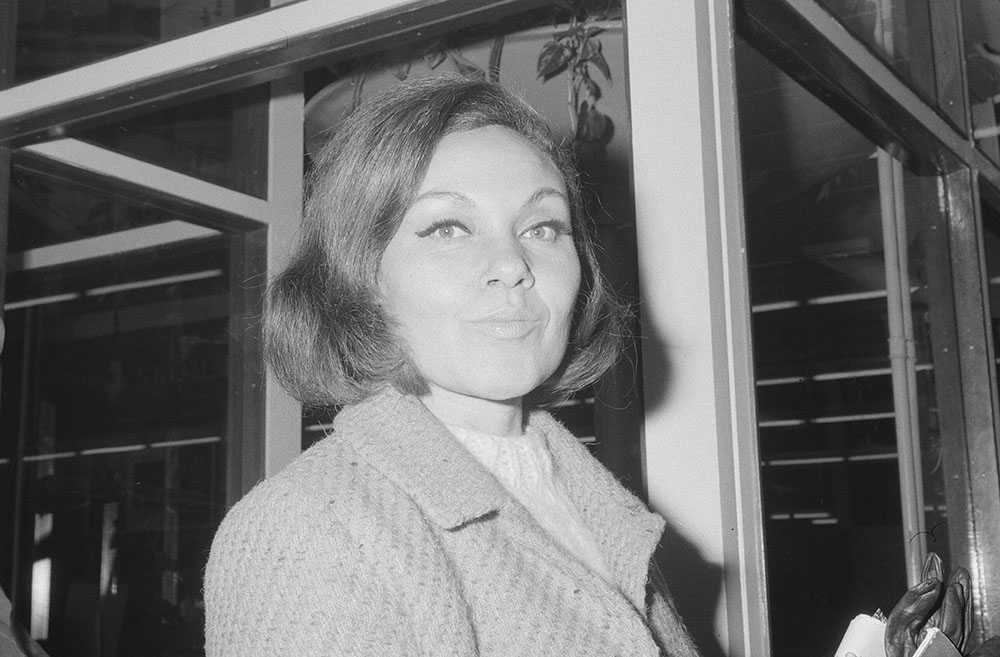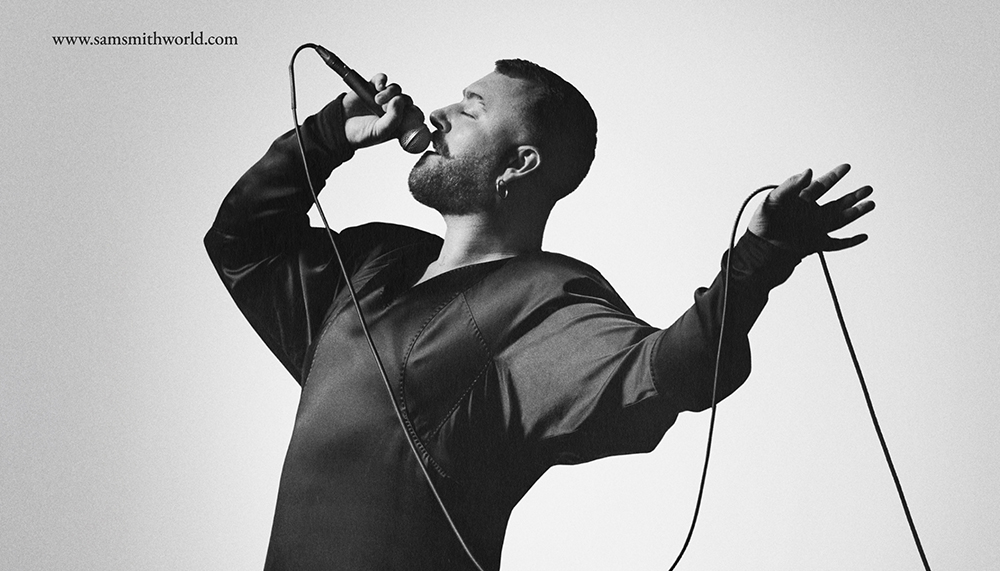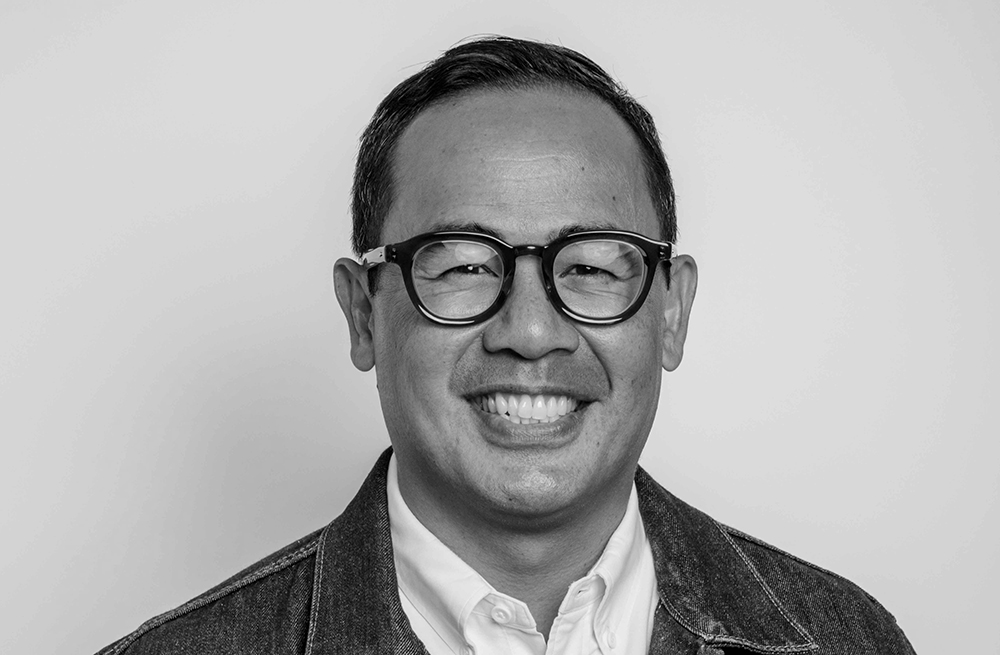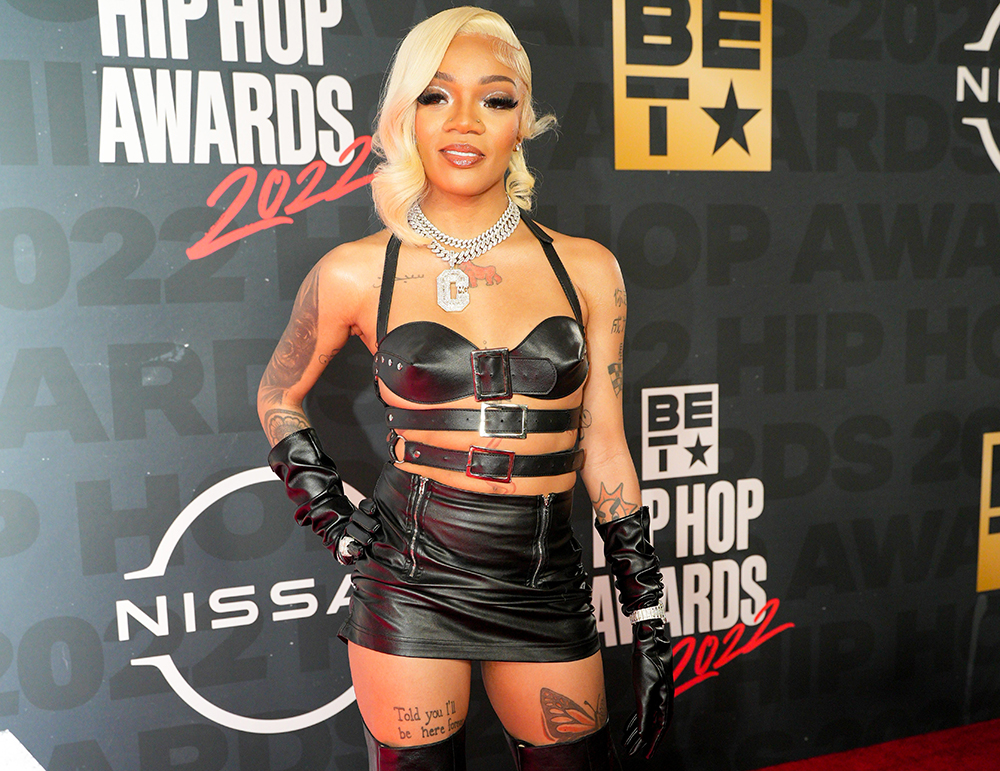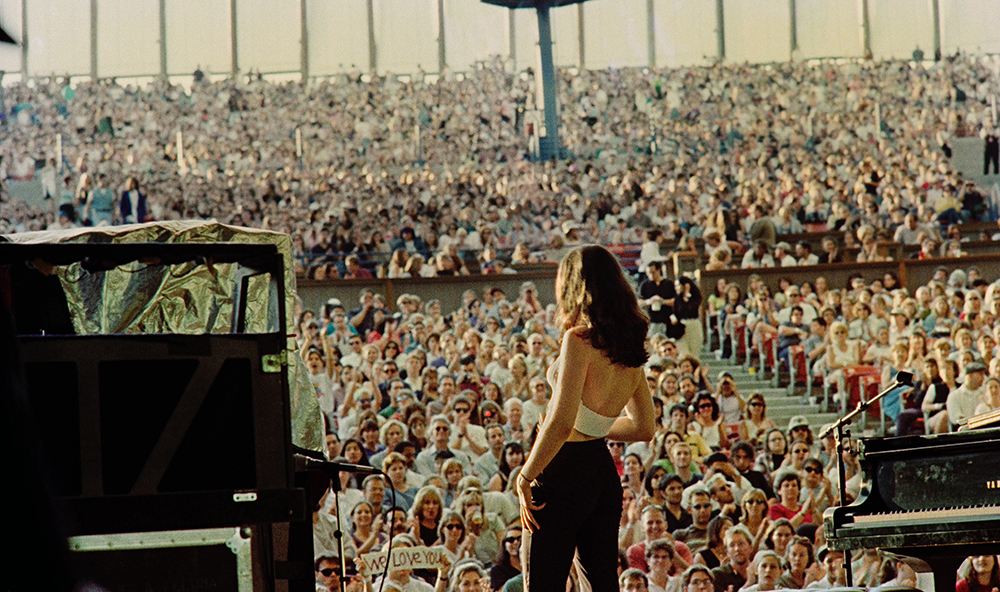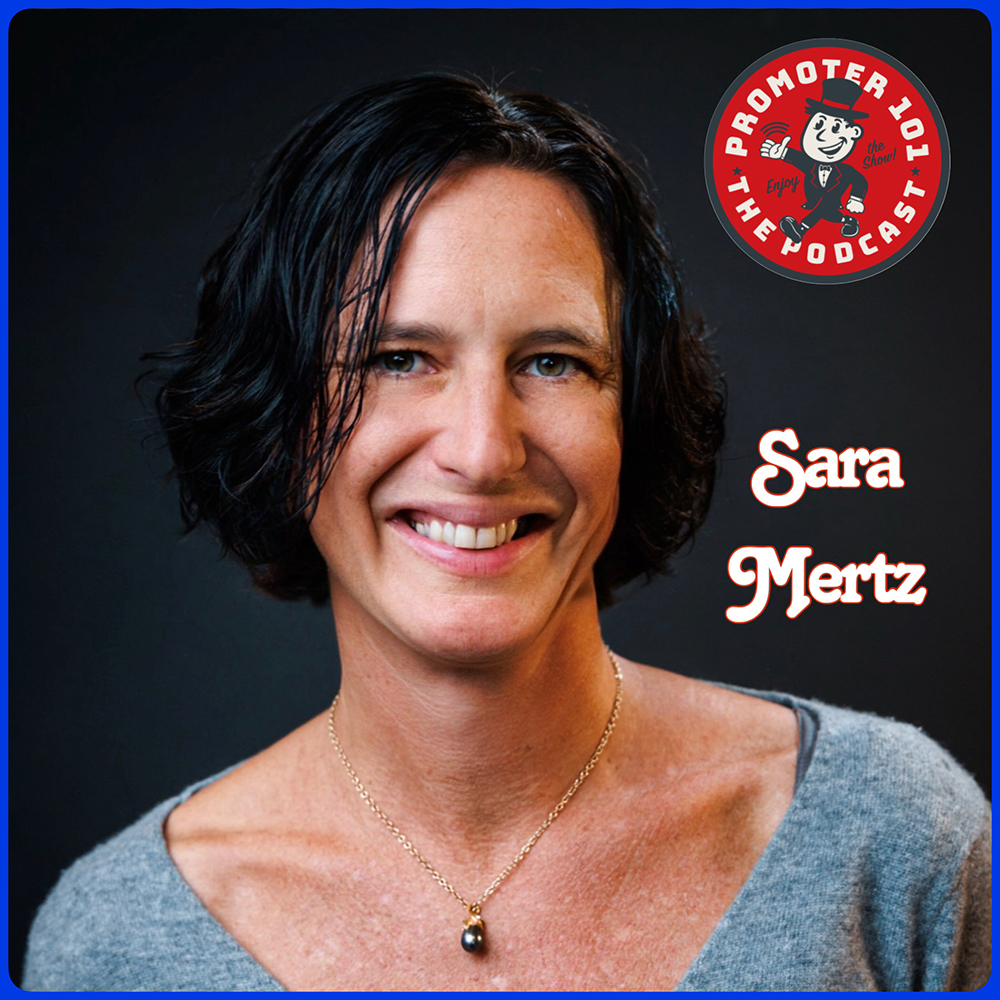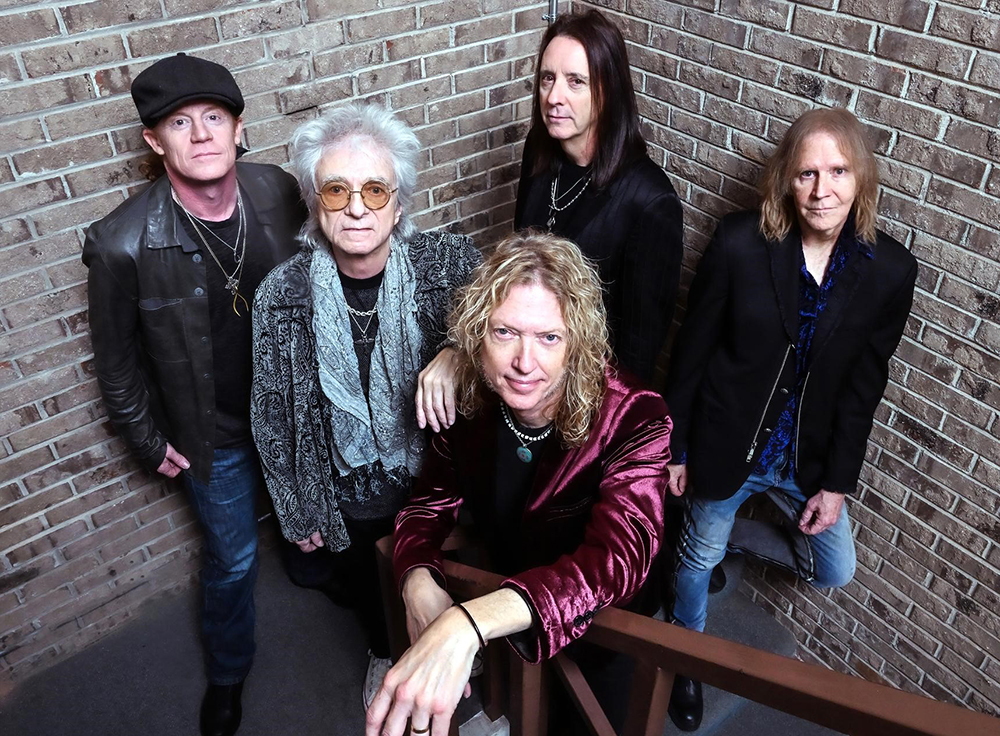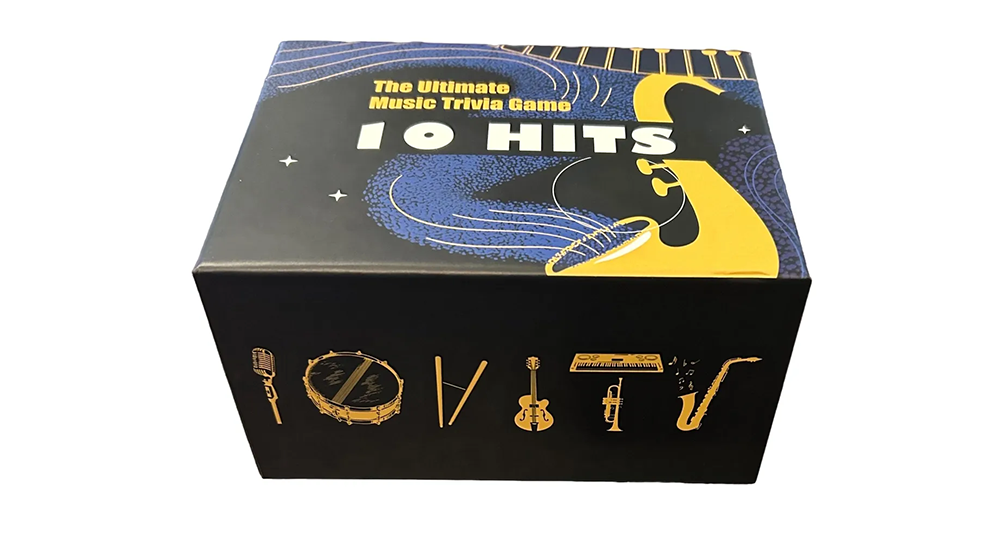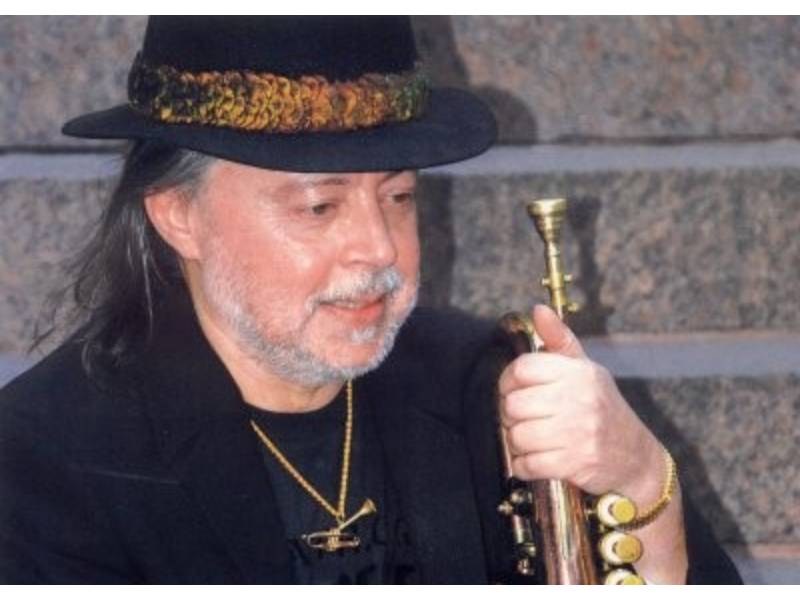This week In the Hot Seat with Larry LeBlanc: Danny Zelisko, president of Danny Zelisko Presents.
Operating from his Paradise Valley, Arizona house—in a suburb of Phoenix–that serves as an office, two doors down from his home, Danny Zelisko heads Danny Zelisko Presents, one of a dwindling number of major independent concert presenters in the United States.
Zelisko has not only been Phoenix’s central concert player for the past half-century, but he’s also ingrained as a promoter in Albuquerque, Tucson, Las Vegas, and elsewhere.
Through the years, he has promoted shows by Sir Paul McCartney, the Rolling Stones, U2, Pink Floyd, Stevie Wonder, Tina Turner, the Eagles, Nirvana, Stevie Nicks, Bon Jovi, Kiss, John Prine, Toby Keith, Eric Clapton, the Jonas Bros., Santana, Nickelback, Il Divo, Diana Krall, Pink, Ozzy Osbourne, Ringo Starr, Bette Midler, Roger Waters, Tim McGraw, James Brown, Barbra Streisand, the Police, Cheap Trick, the Talking Heads and hundreds of other notable acts.
Zelisko’s most recent project is the 4-year birthing of his 343-page book, “All Exce$$ — Occupation: Concert Promoter,” maybe the best single book ever written about America’s concert business; even with no mention of sex, heavy drug use, or truly outlandish artist behavior.
But it is a damn fun first read, and a fascinating second read.
The book bobs and weaves through his years of working with some of the most famous artists, managers, and agent names in live music plus there’s story after story about his incredible life. From his childhood in Niles, Illinois, when he earned money booking speaking engagements for baseball players who needed extra cash, to his arrival in Phoenix in 1972, and the eventual launch of Evening Star Productions that went on to one of the largest independent live event companies in the nation.
Selling Evening Star to SFX Entertainment in 2001 provided Zelisko with access to a greater body of talent and bigger events, especially as Clear Channel Communications bought SFX, and in 2006, the entertainment division and all of its promoters and venues were shifted into Live Nation.
Zelisko remained as president, and then chairman of Live Nation Southwest until he left in 2011 to launch Danny Zelisko Presents.
These days, with live music on hiatus, Zelisko will deliver his book to your house personally, if you live in the Phoenix area for an additional fee that will be contributed to Save Our Stages to benefit those in the music industry locally who have now been out of work due to COVID-19.
Reading the text and glancing through the photos in “All Exce$$ — Occupation: Concert Promoter,” you think, “I so want to go back to that world.”
Me too.
A four-year job in bringing this eye-popping 343-page book to life?
A book like this took a lot of years and a lot of money. Now that I’ve done it, would I do it again? Probably. To me, it felt like something was always pulling me. “You got to finish this. You’ve got to put it together. Nobody is going to believe it. You won’t even believe it when it’s done.” And I don’t. I have to pinch myself every now and then and think, “This really happened.” Now I’m hoping I can get people interested in buying a book about something that they miss so much which are concerts, and working in the business.
Being self-published, it’s up to you to try snare people into buying this.
Now my goal is to break even on it.
The book sells for $39.95 including shipping anywhere in the continental USA.
The (manufacturing) cost of the book itself is $25.
A year ago, you’d wake up every day, and work to sell tickets. Nowadays, with live music shut down, you are waking up every day, and working to sell your book.
I have never tried to sell something like this before. I’m very committed to it. It is a funny thing these days. You get about a second and a half when people are looking at the Facebooks, the Instagrams, and the Twitters, and boy if it ain’t something that they instantly dig or focus on, they are onto the next thing. You have to get them in that subject line or you are dead. To me, it is a good book. It is a really great collection of artists that so many people out there have either bought a record by; or bought a concert ticket for; or worked with in one way or another. Or they certainly have been influenced by these artists in their own lives.
What’s greatly impressive about the book is the bounty of great photos throughout.
The way that I did it is not normal, and I was reminded about that 100 times. Usually, you go on regular paper and use 6 pages of photo paper. I hate reading books that force me to go scrambling backward. So to lay it out like this is incredibly difficult and to size the pictures big enough so they matter. Then I got a couple of photographers to contribute, like Neal Preston who shared a couple of beautiful photos with me. That Stevie Nicks photo in there. I love that picture. It’s a fabulous photo.
I had no idea her father Jess Nicks was a promoter dating back to Bruce Clark days with Compton Terrace after retiring as president and chairman of Armour/Greyhound. Jess passed away in 2005.
Jess was the greatest. We never had a paid guarantee with him. (Manager) Howard Kaufman hated that we would go around the system like that.
(Howard Kaufman’s management company, H.K. Management, had an artist roster that included Aerosmith, Stevie Nicks, Jimmy Buffett, Chicago, Lenny Kravitz, and Def Leppard. In 1974, Kaufman teamed with Irv Azoff to form Front Line Management, which guided the careers of the Eagles, Steely Dan, and Jimmy Buffett, among others. Kaufman passed away in 2017 at age 79.)
When it came to numbers, Howard Kaufman was a fierce negotiator for his clients, including Stevie Nicks.
Jess’s attitude was, “Look you make 90% of the net. Why do I have to give my daughter anything? What does she guarantee me?”
There are only a handful of books on the workings of the live music industry in America. These include:” Promoting Rock Concerts” by Howard Stein, and Ronald Zalkind (1970); “When I Stop Talking, You’ll Know I’m Dead: Useful Stories from a Persuasive Man,” by Jerry Weintraub and Rich Cohen (2010); and “Ticket Masters, The Rise of the Concert Industry, and How The Public Got Scalped” by Dean Budnick and Josh Baron (2011).
There are business books that refer to the actual business of the (music) businesses.
One of the reasons I agreed to start “In The Hot Seat” in 2009 was that most everyone I asked didn’t know if pioneering rock agent Frank Barsalona was alive or not. This was someone Steven Van Zandt described at his Rock and Roll Hall of Fame induction speech in 2005 as, “Frank is the man most responsible for creating the infrastructure of the rock era that we all thrived on from the mid-Sixties into the beginning of the 21st century, when he retired.”
(After a stint as an agent at GAC, Frank in 1964 started the Premier Talent, Agency, the first agency exclusively dedicated to rock and roll; booking the first wave of British Invasion bands, including Herman’s Hermits, Wayne Fontana and the Mindbenders, the Yardbirds, the Who; and later Cream, the Jeff Beck Group, the Jimi Hendrix Experience, Led Zeppelin, Small Faces, and Humble Pie.
While dividing America into distinct live music regions, and then making alliances with a handful of Young Turk promoters, he went on to help break Bruce Springsteen, Tom Petty, and Bon Jovi; and, embracing punk and new wave, represented the Sex Pistols, the Clash, the Ramones, and Talking Heads.)
How did people not know? Wasn’t that a great picture of Frank that I have in there (in the book) from the early 2000s? We had such an amazing two days when I visited with him in New York. It was my last great time hanging out with him, and it was so fun. He was so great.
Interestingly, Frank’s accomplishment of founding the national rock agency system has never really been chronicled.
Not properly for sure. He was kind of a secretive kind of guy, but I found him to be an open book once I got to know him. Just phenomenal.
(A 2018 documentary “The Show’s The Thing: The Legendary Promoters of Rock,” by Philip Dolin, and Molly Bernstein explored the early days of rock promotion which meant, mostly, the days of Frank Barsalona and Premier Talent.)
Frank Barsalona was said to have based his system on the Mafia, awarding each promoter his own territory to control: Larry Magid had Philly for his Electric Factory; Don Law owned Boston for the Boston Tea Party; Irv Zuckerman, alongside Steve Shankman, ran Contemporary which was the concert promotion business of the Midwest, primarily in the St. Louis market; and brothers Jules and Mike Belkin staked out Cleveland. As one promoter said, “It was like the mob, but without the violence.”
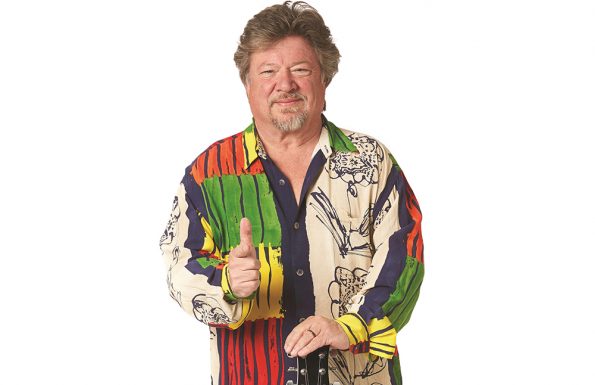
Frank most certainly had a system in mind. I don’t know how much was by design, but I think it was, as he went on, as the head of his own agency, signing one great band after another. He came from a big past at GAC. When I started calling Premier, Bill Elson and Peter Russo were my two guys (agents). Barbara Skydel (executive VP) and Frank were just people you heard about. but you didn’t talk to them. Not when you were me. Not in 1973 or 1974.
As restless as you usually are, 2020 must have been hellish for you with the COVID 19 pandemic. Was it also a period to take stock of your life, enjoy your family, and do different things? When you are overseeing 150 shows a year, it’s difficult to find the time to explore personal life experiences. Was this a year you could work some things out?
In a way. it’s like a forced retirement because, while you are not acknowledging that you are retiring, you are retired in so many ways. There’s nothing that is the same out of your ordinary day anymore. It is like a switch that just got flipped.
Danny Zelisko Presents 2020 was completely dialed and set to be my best year yet. Almost every year since 2011, not only did I make more money personally than when I was with Live Nation, but it (the amount) continued to rise. Not dramatically, but it continued to stay even which was good or rise each year. This year was going to be my biggest year It was set, man.
It was the most beautiful calendar you’d ever seen. I had 18 Frankie Valli dates, a dozen Allan Parson dates, and a half-dozen Gordon Lightfoot dates and there were all these other groups. Really cool legendary people that I get to go around the summer with like working with Scotty Gelman, who had worked for Jam Productions, then Live Nation, and then went independent. We’d co-promote shows in the Midwest in the Midwest. I went to New York last year and did a couple of shows at Town Hall. I just love the idea of going around, and visiting cities, and spending a day or two there, and going to places I’ve never been to before. Not only did we have to put the brakes on that, but Hawaii said that “Nobody can come into our state.” And I’m used to going there 60 days a year.
You started going to Hawaii after 2003 when you were diagnosed with stage 3 colon cancer, and then were cleared.
Correct.
On your 49th birthday, a tumor was removed, and you started chemotherapy treatments at the Mayo Clinic. Then Shep Gordon approached you about buying into a residency in Hana, Hawaii; to be a partner as an investment thing. So you and your family started flying over there 4 or 5 times a year.
I’d already written the check. So it’s flights, and rent a car is the difference. It is truly my second home, and we were now completely cut off. It’s like you are boxed into Phoenix. So we stayed here March, April and May. At the end of May, for our 20th anniversary, a doctor friend lent us his place in Flagstaff (Arizona). We went up there for a week, and enjoyed the big sky, and the cool weather. Since we couldn’t do shows, and we couldn’t go to Hawaii, I had to figure out something to do that wouldn’t look stupid or be stupid as far as where to go, and with who, and with how many people.
(Hawaii now requires all passengers entering the state to upload negative test results to the Safe Travels website prior to departure in order to avoid a mandatory 14-day quarantine on arrival. Passengers who receive a positive test result are not allowed to fly.)
If in the early months of 2020, it was shaping up to be a massive year for venues nationwide–that rang especially true for you and others in the Phoenix market—all of this evaporated with the COVID-19 pandemic.
At the same time, Phoenix’s place in the national touring scene is unique.
When touring starts, there is still going to be a 3-4 month delay period as promoters, agents, and managers figure out how to route tours, and get things booked. Phoenix is not quite an isolated market, but it won’t be a priority until Los Angeles, Las Vegas, Houston, and other markets are open. Who the hell will want to come through Phoenix where the heat climbs well north of 100 F degrees?
Nevertheless, the future for Phoenix as a music center looks promising as it has attracted more new residents than any other city in the United States for the 4th year in a row, according to the U.S. Census Bureau. What was once a destination for West Coast and Midwestern retirees is now an attractive housing and job market for younger workers, lured by the thriving tech industry springing up around the Loop 101 that encircles Phoenix. Today, new developments spring up seemingly overnight in the Phoenix metropolitan area’s increasingly sprawling suburbs.
The thing that is interesting about the size and growth is that I recently ran all over town delivering books to people, and I’ll tell you that I didn’t realize how giant this place has grown. From where I am sitting, I can see a good part of the north side of Phoenix. I drove out there, and it has to be 15 miles from where I am sitting right now. This town is so big because it is spread out. It was never built up. It goes out. If there are 4.5 million people here (in Metropolitan Phoenix), they are in a space that New York has crammed 15 million people in. It is a very different layout than any other place that I have ever been in, and I like it that way. You can breathe here. It’s open unless, of course, you are in town, and that can be a little bit gnarly.
What was the reaction of people when you came to the front door with their book buy?
Oh, they loved it. In most cases, I stood outside near the car, but some of these people have these really giant, beautiful homes, and they’d invite us in. We remained masked up, and signed the book, and told some stories for a few minutes. Overall, it was a fun experience. Some people are just such diehard concerts fans, and they were so nice. Everybody was so nice to me. It was weird in a way when I started doing it but after I did one or two of them, I looked forward to each of the next ones, driving around doing this.
What is particularly evident in the book is the pride of what you do. The title, “All Exce$$ — Occupation: Concert Promoter.” Unquestionably, that is what you are. A central thread throughout the book, in all of the colorful stories and backstage photos, is your take on the industry—particularly with artists and their representatives–as being a family. You are circus people.
It’s true. It’s true. Instead of being in trains, we are in trucks. It’s amazing. I started thinking yesterday of all of the changes that have taken place (with the COVID-19 pandemic). It wasn’t just to the promoters or just to me. It was to everybody. The agencies are basically dismantled. When they come back, they are going to find out how much fat they have been blowing for so many years because they had an agent to take out the garbage can. There were a lot of agents that didn’t contribute. Not their fault. They were lucky to have those great jobs, but I doubt that a lot of those agents are going to come back or come back very soon. It is very similar to the record business falling down the way that it did so ungracefully. This one now wasn’t brought on by stupidly like the record business demise was. This was brought on by a real problem.
Leading up to it, however, was continual escalating ticket pricing that put so many shows far beyond the reach of so many people.
But they (prices) were never better.
Yes, but $250 to $400 per ticket is not a reasonable sales point.
Oh, I know that, but how do you check and balances on the Rolling Stones and Paul McCartney, and all of these people that are still fighting ticket price wars like they were in The Cavern Club (in Liverpool) in the ‘60s? “Well, they charge two shillings, we should charge three shillings. We are better than them.” I mean, what is the point of those guys doing what they do? And I am not putting them down by any means. It’s everybody. I bring those two up only because I like them. I often wonder how much they really know, and study what Barrie Marshall (owner of Marshall Arts, the promoter and agent for Sir Paul McCartney, Sir Elton John, Pink, and Cher) is doing in terms of charging a small fortune for front row seats and just setting thing up where you may be viewed as a very small-minded person if you can’t even buy a ticket for 100 bucks. It seems that is cheap, and it’s not. It’s a lot of money.
I’ve been at so many concerts sitting in second or third-tier seats, mostly complimentary, and looking at people in the premium VIP seats in front of me that were often set aside for American Express cardholders. Not exactly mirroring what one would think fans of the band would look like, and I’m thinking, “Money rules” within the first 25 rows of premium ticketing. I understand that ticketing structure, but I respect artists who try to ensure that their most ardent fans get a shot at being upfront.
On the other hand, if the face value of a ticket with ticketing charges, is $125, and it turns up on one of the secondary ticketing sites, or eBay at $300, what is the real value of that ticket? And that difference is what promoters, managers, agents, and artists are fighting to get cut of. I understand that.
I get it too. It is a very difficult thing (to handle). It is one of those bizarre things in that it is sort of feeds into the whole class system that so many people disapprove of or are embarrassed by or humiliate by. But the bottom line is this is what this society seems to be building toward; which is if you have money, you get to do things that other people don’t get to do. It’s a shame, but it’s the way that it has always been. It’s the difference in the kinds of cars that we drive, and the way we sit at concerts, and where we sit.
At the same time, a music fan can embrace the next tier of performers, many of which are up-and-coming acts, and make them their own.
That’s right.
Meanwhile, the impact of COVID-19 pandemic on musicians and music industry workers everywhere is massive. From lighting techs to truck drivers to sound engineers to background singers, and all of the many people whose life’s work is creating musical moments, none of these people will be fully back to work until the virus is under control.
People look for security in their careers. With that security jeopardized, due to the COVID-19 pandemic, as well as the music industry’s decade-long downturn of lessened recording and music publishing revenue streams, once things get squared away, and back in place, agents, managers, and artists may think, “We need to make up nearly two years of lost revenue.”
I’m curious about when clubs, arenas, and stadiums are operational again will agents, managers, and artists first seek unreasonable high advances resulting in ever-higher ticket pricing? The public might push back and say, “We haven’t got the money.”
I think that the groups that drew before, those that were hot, are going to become the same hot again. I don’t think anything is going to change. Maybe, at the beginning, it will be a little bit softer. But all of these bands trying to do drive-ins concerts, and parking lot concerts with less than…..I have nothing against these bands, but they are not A bands or even B bands doing this. They are bands that are trying to make money to survive. I don’t blame them a bit but, as far as that experience goes, people have been trained (to pay for tickets) over the past 20 or 30 years, when the concert phenomenon became just so crazy—crazier than it was in the ‘90s or the ‘80s because people who had money started getting more and more involved (with concert going). It became their new status symbol of getting those great seats, no matter how much they cost. If you were here in Arizona, and you drove around you’d go, “God, there’s a lot of money here.” I mean it (Phoenix) extends for miles and miles in every direction. Not everybody is as rich as here, but boy it seems like there is a lot of money out there. What happens next? We’ll see when they (shows) come back. The fact is that so many people have held onto their concert tickets. I don’t have the Taylor Swift shows or Mötley Crüe dates or any of those stadium tours. But, in my world where I live, which is 1,000 to 5,000 seats, I would say that we are somewhere between 60% to 70% and as high as 80% on no refunds.
People are holding on to tickets for sure.
The fact is that it’s a pain in the ass to get tickets when you get them and get them for your favorite act. You are happy when you get tickets. You got them and, in many cases, you are thrilled that you did everything properly, and you got the right seats. Who the hell wants to go through that again? We are all planning to be alive whenever this thing ends, and we will return to what we were doing before, and we will already be set up to do that. Money they have. Things to currently do, they don’t. That’s our biggest problem for being human beings right now.
As the pandemic continues to pummel the touring business, and with the country’s economy suspended between the Trump and Biden administrations, there are deep concerns over the strength, timing, and even likelihood of a possible recovery of the concert business in 2021 or 2022.
(Michael Rapino, Live Nation president and CEO recently indicated that demand remained “strong” across the board, with 83% of fans keeping their tickets, and 95% of fans planning to return to live music events when restrictions are lifted.
“We are encouraged by progress on testing technology, treatments and vaccines, which helps us build our plans. We still expect shows at scale next summer, but recognize that the exact timeline of this return will vary by region, and so we continue to focus on remaining flexible.”)
Of course, you are aware of the National Independent Venue Association’s support of the Save Our Stages Act, introduced in the Senate by John Cornyn (R-TX) and Amy Klobuchar (D-MN), as well as the updated Heroes Act which seeks $10 billion for independent venues, promoters and talent agencies.
A lot of independent promoters, most of which have most laid off all their staff, won’t be able to return, and a lot of venues won’t be able to re-open without a substantial stimulus bailout.
Throughout my whole history, it’s always been every man for himself when it comes to things like that. If there’s anybody willing to chip in and lend some sort of a hand, like the Save Our Stages thing, I hope it can. I’m sure that there are a lot of people that are going to need it. You close a building up for 6, 8 or 10 months or a year, it is going to take a while to get those building back in shape, and clean them up, and hire staff, and do all of that stuff. I sure hope that there’s some help there for them.
Why did you leave Live Nation in 2011, and go back to being an independent under Danny Zelisko Presents?
You know, for years it was very frustrating (at Live Nation) because more and more of the buys were coming through Los Angeles or through Gerry Barad and Brad Wavra. Both excellent, world-class tour coordinator guys. The same with Brian O’Connell. These guys had a new system and, in that new system, it never really had room for a guy like me. I was never brought into that. I thought I could have been a great help. They brought other people along into the touring cycle things. I had a lot of great relations with people that I would have liked to have shared with them and helped grow relationships with those people in touring. I thought, at one point, I could have been very helpful with Bon Jovi, which was a ton of money at the time, but I wasn’t allowed to be in the room with the big boys. After you develop something from nothing, and then you turn into the big guy in town, and they wine and dine you, and buy you, you want to come back to the party and count. You want to be relevant in your life, and in this new situation of being employed by somebody.
You re-upped with Live Nation 2006, after apparently being promised greater autonomy and local brand equity.
I re-upped in ’06. It took a long time to do it because they changed some things in my contract that I didn’t like. When I signed, they had put them back in there, and as soon as I signed, they took them out again. I really started to feel like “window dressing.” We really weren’t doing anything anymore. For me, it was just a job. It was no longer this adventure of being the dealmaker and running the show. We would go to many of our shows, and it felt like we were guests at our own shows because there is such a bigger picture when you are in the touring world than when you are just doing one, two, or three shows. All you care about is that. They care about everything else, and for each individual market, but not in the same way that we do.
What you are saying mirrors the story of Louis Messina who, after selling Pace to SFX, didn’t acclimate to the corporate world of Clear Channel. The same with Steve Schankman at Contemporary Productions in St. Louis who left the new company after two years, even though he had a contract for $350,000 a year, an office, and a BMW, saying, “In reality, there was no longer anything for me to do.”
Look they (Live Nation) did a great job. They continue to do a great job. They turned a business from a bunch of people all over the country, and the world into one big unit. It’s a giant business concern. Good for them. The bottom line is that I wasn’t included in that process. So subsequently I got very bored and restless with it. As they did with me because I just didn’t fit in there. It’s hard when you do things your way for so long, and then the new people are doing business don’t even come close to the way you do certain things. That’s where that discourse happened. I don’t hate anybody for it. There are a lot of nice people there. I’m still friends with just about everybody I know from there. My (Live Nation) office still exists here (in Phoenix) that I put together in the ‘90s. The core of that office is still in place, and they do a great fucking job. I miss the hell out of them. I wish I had them back.
You like being in control.
Yeah.
In 2001, you had sold Evening Star Productions to SFX Entertainment owned by Clear Channel Entertainment. The acquisition was the first U.S.-promoter acquisition by SFX since the latter was acquired by Clear Channel.
(Under Robert Sillerman, SFX had spent about $2 billion buying promoters and other entertainment properties, including snapping up 11 regional companies and 82 venues. Sillerman sold the company to Clear Channel Entertainment for an estimated $4 billion. In 2005, in hopes of synergizing its live and radio businesses. When that didn’t happen Clear Channel spun off its live entertainment division to form free-standing, publicly-traded Live Nation.)
As SFX was taken over by Clear Channel Entertainment and then morphed into Live Nation, It was a chaotic couple of years. There were sizeable problems including the regional affiliates not fusing together, immense executive turnover, and ongoing internal power struggles.
Yeah. When Clear Channel did that deal it was like someone had some smoke and mirrors and sunglasses on there. It was definitely different times there. But the bottom line to your question, over the 5 year period which was between 2006 and 2011 which was in the first 5 years of Live Nation, there were a lot of things that were problematic for me just like Live Nation which was a fledgling new company.
When named Clear Channel Entertainment’s global music president in 2005, Canadian born Michael Rapino became the 5th head of the music division since 2000. After some initial painful layoffs, Rapino brought stability by restoring a degree of autonomy to several regional divisions and won favor at the regional level by dusting off historic promoter names (including Evening Star) retired in 2001.
I’m not sure Live Nation would even exist today without Rapino steering it as he has for the past 15 years.
Well, that could be. We will never know because somebody else would have been put in his position. Just like I don’t know how I would have turned out if I didn’t sell in the first place or later leave.
There have been over 1,000 Danny Zelisko Presents shows since 2011. How did you adjust to being an independent promoter again after leaving Live Nation?
When I started back on my own again as an independent in 2011, I didn’t know what I was going to do. How I was going to do it. And I didn’t know where I was going to have an office. I was partners with Shep (Gordon) and Alice (Cooper) at (the restaurant) Cooper’stown downtown when it was still there, and they said, “You can have the basement.” I used the basement, but the tables and chairs (above) kept scraping across my ceiling. It was so loud that I couldn’t handle it.
(Cooper’stown, which closed in 2017, opened in 1998 in a historic building in Phoenix’s warehouse district. Cooper opened the $2.7 million restaurant with several investors).
So I ended up moving into another house that I owned down the street from where I am; which is inspired by Shep because he had an office next door when he bought a house next to his regular residence. It is the most convenient way in the world if you can do it, if you can arrange it, to do business. It really made it possible for me to mentally handle the idea of starting out again on my own. I had to start over again from scratch. Doing the new checkbooks, the accounts, the phones, cred card things, ticketing, everything.
Among your staff are Mariam Newyen who worked for CAA; Tim Mohn, who was hired as an accountant at Evening Star in the ‘90s, and has turned into a great concert marketer; and your production manager Mick Treadwell who has been with you for three decades. And graphic designer Tondra Dené; and Kathy “Koz” Perschhke who oversees ticket counts.
Mariam was the first person back on board with me. She does contracts and makes offers up for me. She is like my one person department of support.
Mariam worked at Evening Star?
Yes, I took her on a recommendation from Mike Piranian and Carole Kinzel at CAA. She said she was moving here, and I hired her. That was in the very early ‘90s. So she was with me all the way into Live Nation until Live Nation did a reshuffle, and then she was out for a few years. Then I hired her back when I started again.
I also had an accountant that is no longer with me, Jamie Lange, and Krystal Muller did my ticketing at Evening Star for many years, and she started up with me again in 2011. She didn’t last very long. She went on to be a yoga instructor. I guess that is what this business can do to you sometimes. Then I hired Tim Mohn back. I think he’s gotten what he wanted which is he wanted to be here number one, and he got to expand himself in terms of other obligations and responsibilities at work. Other than just doing accounting he’s very much with me in marketing and promotion. I do most of the marketing as far as radio buys and print buys. Tim supports most of that and carries on almost all of that stuff. Tondra Dené is the art and social media person. She’s the one that took my book by the horns and finished it for me. I had been dicking around with it for something like four years. I put it in front of her, and I said, “I really need some help with this.” She took the book over, finished the editing, and laid it out. The layout is all her. Koz now does ticket counts. Jason Shepherd and Scott Phelps do memorabilia photography and the lists. Our first auction on December 12th has 300 rare pieces from Danny Zelisko’s Closet: https://www.invaluable.com/catalog/jonu2qvbxx
Who are your competitors? I know of Charlie Levy, who runs Stateside Presents, operating the Crescent Ballroom since 2011, and The Van Buren since 2017 with House of Blues Entertainment; and Tom LaPenna, who operates Lucky Man Presents with The Marquee Theatre. Then there’s your old friend, Live Nation’s Terry Burke, president, Southwest Music at Live Nation.
At face value, you would look at that, and that is what it would be. But, for instance, with Charlie and Tom, who are both mainly operating nightclubs, those guys are pretty much in a different world than I am. They are doing a lot of new bands. They have the facilities for them. That is exactly what both guys Charlie and Tom do.
Both Charlie and Tom used to work for you?
Yes. Charlie was first. He lasted a few years. He thought Evening Star was too corporate. I’m not making fun of him. That was just his style. He liked it more organic.
This was after Evening Star was purchased by SFX?
Oh, no, no. Early ‘90s. Everybody in this market worked for me. I am very happy for them and proud that they did so well. That they were inspired to go out on their own and do what they do. I do a completely different part of the music business. Most of the stuff that I have been working on my whole life, it is not necessarily arenas anymore, but they will also do 1,000, 2,000, 3,000 people, and that is where I’m at. Charlie and Tom are more on the cutting edge, newer, and harder core stuff, and younger stuff because they have the facilities for them. Charlie has that nice 500 seater The Crescent, and also The Van Buren which he partnered with Live Nation on, and Tom has The Marquee.
And you have The Celebrity Theatre which has 2,600 seats.
As my main places of booking, I go to The Celebrity Theatre, and I do shows at the Talking Stick Resort which has three venues. A 700 seat showroom, a 2,000 seat ballroom, and a 4,000 capacity pool venue. The Celebrity remains a mainstay in the market. People love going there. I guess the audiences like going to the other places too. Live Nation has the Comerica Theatre or whatever it is called now.
(Two years ago Arizona Federal Credit Union took over the name-in-title sponsorship of the 5,000 seat Live Nation theater on the corner of Fourth Avenue and Washington Street in downtown Phoenix and the Comerica Theatre name changed to the Arizona Federal Theatre.)
Then there’s Symphony Hall in downtown Phoenix with a 2,312 seating capacity
Symphony Hall is a beautiful hall, and I love doing shows in there. For the right acts, you can do good in there. It’s a great place to work, and play, but like in so many cases, people get used to going to the places that really like. They are creatures of habit. People know how to buy the Celebrity Theatre tickets, and know how to get in and out of the place, and know what’s going to happen once they get there. And the same, other venues have come to be preferred venues because they deliver whatever the audience is looking for.
Despite the early consolidations that retooled the U.S. concert promotion industry in the late 1990s, Evening Star had been surviving within an increasingly fiercer competitive market. Then SFX bought the Akin-Chin Pavilion amphitheater in Phoenix; and snapped up Pace Entertainment out of Texas in 1998 in a $130 million deal that included Pace Concerts, Pace Theatrical, Pace Motorsports, and the company’s 13 amphitheaters. Pace Concerts.
You had developed acts like Santana, Tina Turner, Sting, and Roger Waters. One year, you would have 5 or 6 shows with Santana because you also went into Las Cruces (New Mexico), and El Paso (Texas). You did shows all over the country. You really had no limit to what you could do. You were an independent promoter.
Suddenly, SFX was booking 30 and 40 date national tours, and you were being squeezed out of shows in Phoenix, Las Vegas, Tucson, and Albuquerque. Within an increasingly fierce competitive market, it was getting more difficult to compete or even survive in your markets.
That is why I ended up selling. I went from getting 5 Santana shows to getting a third of one in an amphitheater. It happened with Sting. It happened with Tina Turner. It happened with a lot of big acts because it became such a prevalent thing to do these amphitheater tours where they couldn’t say, “We are going to carve you out of this one and play an arena. They ended up doing that a lot here because most of these tours happened in the summer and a lot of groups don’t want to play outside here in the summer and rightfully so, it’s too hot. But at the time that I was working for them I was like, “Oh no, oh no come here.”
You also had been in negotiations with Universal Concerts’ president Jay Marciano, but the deal fell through. Only then did you work out a deal with SFX.
The Universal thing with Jay Marciano, I thought that was a great fit. They were House of Blues.
How close did you come to selling to Universal Concerts?
I had terms set up. We were going over the numbers from the previous years. All of a sudden that one dark weekend hit when (veteran agents Marc) Geiger and (Don) Muller did their ARTISTdirect Records thing. I only put $5,000 in there which I immediately kissed goodbye to. It was right around the dot.com crash, and they just said right then, “We are putting a hold on any future or additional acquisitions right now. We’ll be back in touch.” And they never were. All along, there had been a reach out from SFX, from various people there. A number of my friends were already there like Gregg Perloff, Louis Messina, and Jack Boyle.
(In February 2001, Interscope Records co-founder Ted Field had launched ARTISTdirect Records in conjunction with Marc Geiger with the premise that “the Internet was going to radically reshape the music business, both from a distribution perspective as well as create new revenue streams that hadn’t existed before. “Financially backed and distributed by the Bertelsmann Music Group, the label sought to wed a traditional record label with Artistdirect’s online delivery platform. The label failed and folded in 2003, leaving behind several releases from artists such as The Blood Brothers, No Good, and Mad at Gravity, and a reported loss of $100 million.)
SFX already had Bill Graham Presents, Pace Concerts, and Cellar Door under its umbrella.
We were actually at the very end of that. I didn’t sell until 2001. (Mitch) Slater and (Dave) Lucas (Sunshine Promotions) those guys were way ahead of me. It was odd.
Looking back, it was most likely Mitch Slater who was piloting SFX in its earliest days. Robert Sillerman had no idea what the music business was about. He didn’t know the players. Mitch told him the companies to buy and in what order, and how SFX was going to roll everything up.
(The consolidation of America’s concert market began with SFX’s acquisition of New York promoter Delsener-Slater Presents in 1996. By the decade’s end, legendary American concert companies like Cellar Door, Pace Concerts, Bill Graham Presents, Don Law Presents, Sunshine Promotions, Contemporary Productions, Evening Star, Electric Factory Concerts, Avalon Productions, and others were under the same umbrella.)
I was flattered in a way that they were interested in doing something with me because I had no real estate. I had a pretty spotless reputation.
You also had to protect your staff as well.
Well, yeah. The other part of it too was that I had been a joint venture partner with Jam (Productions) for many years. I had been approached by (Barry) Fey (Feyline), Avalon, Bill Graham, Pacific (Concert Group) and a couple of other people wanting to take Evening Star under their wing, but the fact was that I didn’t need any wings. I already had my own, and I wasn’t interested in going to work for anybody else. We were doing fine. We were doing 300 or 400 shows (a year) for two decades.
For many years, you had few outside promoters dipping into your markets.
Hardly ever.
Barry Fey would occasionally jump into your market.
Very occasionally. But he was used to doing that. Everybody used to use Phoenix as their Tucson. Denver would do that, L.A., San Francisco. People would say, “What about Phoenix? I’ll try that.” All we had was the Coliseum here which wasn’t the greatest facility, technically-speaking. It was fun to go to, and I liked using the building at the time, but it wasn’t great for production. You couldn’t hang very much there. Then in the late ‘80s, they started talking about new arenas coming around. That is why ASU (Arizona State University) came into the picture with their arena because you could do things with it production-wise better than you could at the Coliseum.
I figure that if you passed at working in a promoting job in Denver at $400 a month from Bill Graham in 1974 you’d pass on selling Evening Star to him.
(Laughing).
I love the story when you are negotiating with Bill and his team years later, as a younger promoter, and Bill said “Did we really only offer you $400 a month?” You said, “Yeah, you did.”
$400 a week would have been tempting for a teenager.
At the time, if it was $400 a week I probably would have taken it. Even at $400 a month, it was more than I had coming in. I had zero coming in, but at least I was on my own
You had met Bill Graham backstage at the Berkeley Community Theatre in Berkeley In 1972. Yes was performing that night. You walked onto an equipment truck and, acting like a stage hand, you started pulling gear off. When you came down the ramp, you talked with an English accent to Bill Graham’s crew, and they bought it. Later that night at catering you were getting your free meal—you were flat broke and 17 years old—Bill picked you out, and said, “Who the hell is this kid?”
A year later, you were hired to work security for Alice Cooper’s “Billion Dollar Babies” date in Tucson, promoted by Bill. Apparently, he threw Alice’s dad out of the backstage area because he didn’t have a pass, and Alice’s manager Shep Gordon was furious. “Bill, who the fuck do you think you are?” And there was a fistfight between the two backstage.
Your close relationship with Alice Cooper began that day.
That is one of my longest friendships. We have never ever had a cross word or a misunderstanding that led to anything bad.
Over the years, before and after his death in 1991 at age 60 in a helicopter crash, Bill Graham has been viewed as a caricature. As this tempestuous, aggressive promoter with a troubled start in life that instilled in him a hunger to succeed. However, I found him to be an incredibly kind person, and quite humorous at times. And damn smart.
He was all that. Here’s a guy…keep in mind all of the hundred and thousands of shows that his companies put on, and the extraordinary things that they did over the years, it requires so much concentration, and the chutzpah and everything else that it takes to be a promoter. But I found Bill to be one of the nicest best friends that a guy could have. The last four years of his life we spent a lot of time together. I wish I had been with him for more We were acquainted but not like we were when I did my first Dead show with him in ’87. We did nearly 20,000 people at Compton Terrace. He was out of his mind thrilled. “Where have you been all of my life?” and all of that kind of stuff.
Bill had an incredible memory.
Oh yeah.
In Tucson with Alice, he remembered you from the Berkeley Community Theatre.
Oh yeah. We never really went out of touch. He kept his eye on everything that was around. He was happy that I was loyal to my other partners, Arny and Jerry in Chicago. He was like, “Well if that is still working for you, mazel tov, see you later. Bye.”
(Today Danny sits on the board of the Bill Graham Foundation, a charity that provides grants for music, the arts, and education, as well as social work, environmental protection, and spiritual and compassionate projects.)
A few weeks after Bill Graham died in a helicopter crash, you and comedian Sam Kinison had a near-death experience in a helicopter as the pilot lost control.
Yeah, he lost control. They didn’t tell us until they set it down. We were very stressed about going in a little plane after that had happened the previous fall. That was in Hawaii. We were flying back and forth between the islands. I can’t imagine that happening, but it did.
The following spring in 1972, you visited Phoenix, went to the Celebrity Theatre, and saw John Mayall and the Bluesbreakers perform. You loved the vibe in Phoenix enough that you stayed and started Sundown Productions with an $11,000 stake from your father and Buddy Kopald, father of your friend Larry Kopald.
Unsuccessful in promoting Mahavishnu Orchestra at the Tucson Music Hall, and Herbie Hancock and the Headhunters in Phoenix, it didn’t take long to go through that bankroll. You ended up selling waterbeds, saying to callers, “That will be $1.99 for the algaecide and $29.99 for that mattress.”
Then you were hired by Dooley’s, a club in Tempe.
Dooley’s was built in 1976, when clubs were just becoming in vogue. This was a big club at the time. It was 750 capacity. I started booking shows there at the end of 1976. They hired me for $80 a week, and I made a commission on the advertising. Believe me, $80 was shit then as it is now. But, on the average, I made about $300 (weekly) with the advertising commission on the shows. I was living okay.
How long were you on staff?
That only lasted for about a year. I booked a few shows at the club myself like Sea Level and the Dixie Dregs as well as Taj Mahal, which was really my first score in my promoting career. Anything I had done up to then I had either broken even or lost money. We sold out two shows with Taj Mahal.
By then, you had launched Evening Star Productions?
Yes, Evening Star started at the end of ’76. I started the company because I wanted to do Taj Mahal at Dooley’s,
You worked with Arny Granat and Jerry Michelson of Jam Productions in Chicago for over two decades, starting with a 1977 Gino Vannelli show at Symphony Hall?
That was the first one. We started a friendship then. At the end of ’78, I needed a little bit of money. So, for $7,500 Arny bought 50% of my business in nightclubs. We continued our joint venture business relationship until I sold Evening Star to SFX in 2001.
Arny and Jerry were major players in America’s live music world.
Oh yeah.
(In 1977, Arny Granat and Jerry Michelson co-founded Jam Productions Chicago’s most important, and powerful concert producing company. Over the decades, it produced countless Chicago concerts, including by the Rolling Stones, Prince, Adele, Cher, Frank Sinatra, Bette Midler, among many others. In a shocking turn of events, Arny left Jam Productions in 2019 to head Grand Slam Productions, Jerry continues to operate Jam Productions.)
What attracted you to Arny and Jerry?
Well, they were in a great music town. I grew up there. I didn’t know them when I grew up there because I left when I was 17. But they were just starting to making their move in doing things as I was getting ready to leave. There was a guy called Howard Stein there and he had these guys at Flip Side Records (in the Barrington Square Mall owned by Larry and Carl Rosenbaum) — record store people and ticketing people. They were kind of like his ears and eyes. That is where I used to get my tickets from when I went to concerts.
(New York nightlife entrepreneur Howard Stein was a notable rock promoter in the early ’80s operating The Academy of Music (aka The Palladium), and promoting shows at The Beacon Theater, and The Capitol Theatre in Port Chester.Then he got bored with rock and opened Xenon’s which became the New York disco of the ’70s, followed by the Rock Lounge and Au Bar. The New York native was the son of Ruby Stein, a loan shark murdered by the Westies, the New York City-based Irish American organized crime gang, whose headless body was found floating in Jamaica Bay. Stein himself died in 2007 at age 62 after a battle with kidney cancer.)
In the ‘70s, Flip Side had 12 stores in Chicago, and 25 in the Midwest, and sold records and tapes, music-related merchandise, electronics, and clothing, and shoes. They also acted as an outlet for purchasing tickets for Chicago-area concerts. With the changes in the music industry, the chain eventually went out of business around 1992.
My main concert years there were 1971 and 1972 before I left in ’72 (for Berkeley) So as the ‘70s went on I would be going back and forth a little bit but I couldn’t afford to fly back and forth the way I might now. I would have to drive which was a total pain.
How did you get connected to Arny and Jerry?
I met Fred Ordower of Jam through my brother Jimmy, who is no longer with us. Fred was the guy who did all of the work for Jam (as production manager). He did all of the insurance work. He supervised all of the promotions, the ticketing, the settlements. They had other people there, important good people at Jam, but Fred was basically the guy who made Arny and Jerry look great. Arny and Jerry were the dealmakers; they were the ones that talked to the press.
My brother Jimmy (writing for a Chicago weekly magazine called the Illinois Entertainer) met Fred, and followed him around at a Santana show and Fred told him, “I don’t want you writing about me. I don’t want any press.” And Jimmy, of course, wrote all about Fred. They got mad at each other because of it, and then they made up. Then Jimmy said, “You should talk to Danny.” And we started talking all of the time. He sent me a legal pad full of questions that I answered him in hand-writing. Not typing or with a computer. Like a 50 page questionnaire about what I knew about my market.
Fred and Arny taught you about the business of doing concerts, about contracts, insurance, banking, and accounting. Fred being the hands-on teacher; Arny playing a mentoring role. They taught you the backroom aspect of live music?
A lot of it yeah. There’s is so much more to it at their level because they were already doing the Auditorium Theatre (4,000 capacity), my favorite theatre in Chicago.
And you were promoting shows at Dooley’s Nightclub with a 700 capacity with such acts as The Police, Cheap Trick, Pat Benatar, Talking Heads, Kiss, Bon Jovi, No Doubt, and Nirvana.
That’s right. I was doing Dooley’s. I was only there for a year when I met up with these guys. We never had papers. It was a handshake. At the very beginning, they put up some deposits for the first year or two before I had any money gathered of my own, If there was front money needed they would put it up. But, as time went on, you get credit with the agencies, and with the radio stations and so forth. and they don’t start having you pay in advance. And, as time went on, it eased into a situation. It was basically a cash free business and we just did our jobs. So as time went on, although I didn’t need Jam like I did, they remained my partners for years until we had a change in our business. I ended offering them to buy into Evening Star which was a company they helped develop, but if I had sold I was the 100% owner of Evening Star, and they had nothing. I really thought I was going to do this when I started talking to Jay Marciano.
Jerry and Arny were against selling to Universal Concerts?
Jerry didn’t like it. Arny wasn’t crazy about it. Like I said, they would have lost all income if I had sold, as they had no stock in Evening Star.
(Jam Productions, which had owned a financial stake in Evening Star, was compensated as part of the deal to sell to SFX.)
Once I had an offer from Universal I told Jam, then sold them half of ESP so they wouldn’t be left out of the sale. They did a Joint venture with me all that time, and I thought they deserved it.
American booking agencies in the ‘60s didn’t prioritize their rock rosters as Premier Talent did. It wasn’t until the ‘70s that things changed.
By the time I got involved in ’76, you had Magna Artists with Stan Goldstein whom I loved, and Bobby Engel had Variety Artists.
And there was also by then Ron Rainy, also at Magna Artists; Marsha Vlasic at ICM: Jeff Franklin at American Talent International; Hal Ray at William Morris; and Alex Hodges of the Paragon and Empire Agencies.
They were all of the newer agents.
I don’t know. There was IFA with Dan Weiner. He had been around for a while.
Dan had worked for Albert Grossman’s New York-based management company, and he did road work for Bob Dylan before landing with Ashley Famous Agency, IFA’s predecessor. Then Dan and Fred Bohlander left ICM, the product of a merger between IFA and CMA, to open Monterey Peninsula Artists in 1975.
I got in as the business had already started to unfold, and explode. I would call up (Premier) and ask about some group that I really liked. I wasn’t asking about the Who or Crosby, Stills, and Nash or anybody like that. I can’t remember one of the early ones I called about but they said, “We’ll talk to you about (ex-Procol Harum guitarist) Robin Trower who just put out his first record (“Twice Removed from Yesterday” in 1973) You can make an offer for him. Don’t be asking about these other groups that already have relationships in your area with a promoter. That is how we do it.”
Premier also probably offered you the progressive UK rock band Gentle Giant.
They did that a couple of years later, and I begged for them because they are one of my favorite groups. They were great. That’s what I liked about Frank and Premier. They had groups that I really admired like ELP (Emerson, Lake & Palmer), and King Crimson, were among my favorite group at the time. And I would go and see them. Yes was also huge with me. And then they would have the monsters. They built Springsteen and U2 and all of that. It was quite a powerhouse. Everybody watched in awe that this one little office ran so many shows, and launched so many great careers. Just like any other business. Like the promoter business that turned into all of this. At one time we were all little mom and pop delis on the corner in our respective towns, and Frank Barsalona was our supplier. It wasn’t just Premier. There were all the other ones that we tapped into as time went on. But they adopted pretty much the same philosophy that he did about people working in their own back yards and asking for things outside of their backyard if there was nobody to trend to it. That was a very solid great way of running a business.
That regional dominance changed as Michael Cohl’s Concert Productions International (CPI) significantly extended its sphere of influence, first across Canada through affiliations with Donald K. Donald in Montreal, Perryscope Concert Productions in Vancouver, and then with affiliations with regional promoters in the United States, including holding a 50% stake in Feyline Productions of Denver.
Under Cohl, CPI created new revenue streams around tours, including utilizing aggressive merchandising, VIP ticketing, and fan clubs. In 1987, Cohl and Ballard became partners with Labatt’s in BCL Entertainment which became CPI’s parent.
Live music changed forever when Cohl wrangled the Rolling Stones’ 1989 Steel Wheels world tour from Bill Graham. Suddenly, CPI continuing to produce an average of more than 250 concerts per year, was planning out international tours with the Rolling Stones as well as with Pink Floyd and David Bowie, becoming a major player on the global stage in the ’90. But that growth started with CPI—piloted by Cohl and Arthur Fogel—dipping into America’s regionals markets.
Well, of course, Jerry Weintraub did that for years too.
Being the first to organize and manage large arena concert tours for artists, Jerry Weintraub booked tours by Elvis Presley, Frank Sinatra, the Four Seasons, Neil Diamond, Bob Dylan, Led Zeppelin, Three Dog Night, the Carpenters, the Moody Blues, Dolly Parton, the Beach Boys, the Pointer Sisters, and John Denver.
He had a great stable. He was more like the slick version of Don Fox (at Beaver Productions in New Orleans). He was the other live version of Don Fox who went around with ZZ Top, Johnny Winter, and Rush.
Don Fox remains as one of the most fiercely independent American promoters of all. Booking Bruce Allen’s acts Bachman Turner Overdrive, Loverboy, Michael Bublé, and Bryan Adams; and Bruce’s partner Sam Feldman’s acts Norah Jones, and James Taylor.
Don Fox and Bruce Allen joined at the hip.
I’ve been begging Don to do a “In the Hot Seat” profile for over a decade.
Don doesn’t want anybody to know what he’s thinking or what’s he’s doing.
Don holds most of the current James Taylor dates with Jackson Browne. Are you holding onto any upcoming James Taylor dates?
I have none, unfortunately. And don’t I know it. I got completely fucked over that one. I’ve always done James and it was like, “No. We are doing everything with Don.”
You don’t like it when you are beaten out of a date by anybody?
There’s a part of me that has had to recognize that all along for the last decade which that there are a lot of bands I built up or I started working with from the first time coming here because I go back so far in the ‘70s. I did all of James Taylor’s shows, all of Jackson Browne’s shows for many decades. Then for another independent promoter to get it, and not recognize or realize that, I say, “Shame on Don.” But I’m not mad about it. Don is an individual making a living like everybody else. Why would I be mad at him and not somebody else like my former employer (Live Nation) or AEG when they book a whole tour; they don’t need to be fragmenting it off when they are dropping $30 or $40 million guarantees for the whole country? Sometimes, they do, but usually, it is when an act raises its hand and says, “Hey, he’s our guy.”
You had some acts and managers that were very loyal like the late John Prine, and his manager Al Bunetta.
Yeah but you know what happened when I got to SFX? They said, “You can’t do John Prine all over the country anymore.” Right then I should have said “No.” I should have said, “Goodbye,” because “I will take my chances.” I did more John Prine shows than anybody and, when I was first told that I wasn’t allowed to go outside my area to do John, I was heart-broken. I called Al. I was crushed. It allowed them to develop (John’s career) and they had to. It forced them to create new relationships in other markets. But it was like your wife cheating on you or something, and reading about it every day in the paper. I really hated it. It was one of the worst parts of having done that (SFX acquisition).
You had Steve Goodman open for John Prine. Steve died at 36 in 1984 of leukemia. During his illness, he had anointed himself with the tongue-in-cheek nickname, “Cool Hand Leuk.” I love Steve.
Me too. It was so funny with him because for the short time I knew him for most of it I had no idea that he had been sick. And it didn’t matter because he was in remission for the whole time that I knew him. I only met him in ’77. In ’84 a few months before he died, he flew to Phoenix to sing at my 10th anniversary party of being a promoter. The first thing he said, “All of the big rock stars that you work with and you got some sick little folk singer singing for you here?” He thought it was hilarious.
You spoke out against SFX, particularly its practice of snaring headliners for national tour deals with unprecedented guarantees. But nothing changed. SFX continued to pummel your business, and you caved in and sold to SFX.
I didn’t know with certainty what was going to happen as the new century unfolded. I started it out with the biggest loss that I had ever incurred in my life in Vegas. That last weekend, with the both the Eagles and Bette Midler, as the century came to a close. Again I take full responsibility for it. It should have gone the other way. But when things happen that you can’t control like Y2K (referring to events related to the formatting and storage of calendar data for dates beginning in the year) and terrorist threats, and all of the things that were thrown at us along the way it brought everything to such a head. That definitely went into my mind as far as making the final decision. I was one of the last guys to sell into it (SFX). I think that was around the time Jules (Belkin, of Belkin Productions), and Larry (Magid) did. I think that Larry (Electric Factory Concerts) was the last one to sell.
Mike and Jules Belkin sold their company to SFX Entertainment in 2001 for a reported $11 million. Larry Magid had earlier sold Electric Factory Concerts in 2000 to Robert Sillerman as part of the consolidation under the SFX banner. Clear Channel Entertainment, however, acquired SFX soon afterward. After its parent Clear Channel Communications spun off CCE into Live Nation in 2005, Magid considered leaving. However, he decided to stay on under the new CEO Michael Rapino. He stayed, but he worked without a contract for about 14 months before parting ways in 2010.
We had been talking about it (leaving Live Nation) all of this time. It just seemed like the right thing to do at the time. It was already happening and all of this would have happened anyway. How it would have turned out? Who knows? Except that I am still doing this. I’m very happy with my place in it (the concert world).
Disappointments?
There are a number of shows and a number of artists that I wish would have shown me some memory or loyalty. I was brought up in this business to believe that unless you do something incredibly dumb or stupid or screw somebody which I don’t do. I would have liked to have maintained those relationships that I started before SFX, and continued, on their behalf, with my relationships with those bands for their benefit—which I did—and it kept growing those relationships for my employers. And now that I’m not part of it (Live Nation) to not be part of many of those dates financially is awful, but mentally it is also disturbing. But you get used to it, and you realize, “Well, I have all this other cool stuff. And I have these other great artists.”
Your longevity is rare in show business. At 66, you are still relatively a young man.
I appreciate that. I have always hung around with older people. I always got on better with them. And, frankly, nobody my age that I was aware of back then was doing what I do. The only one I’m in touch with other than Terry (Burke) here in town and Bill Silva, and my Goldenvoice guy, Paul (Tollett). I was great friends with Rick van Santen. I’m still friends with Bob Barsotti up in San Francisco. Gregg Perloff and Sherry Wasserman I don’t really talk to that much anymore. I love them both though. They are great people. I’m glad to see a lot of the peers are still out there doing stuff when they are allowed to. This pandemic has really thrown a curveball to everybody.
Confirm because you were involved, that Lollapalooza was almost named Jamboree.
It was almost called that. That was the word that was out there that you are trying to suggest an event that has glee. That is bigger than anything that you have ever done before. Jamboree sounds like a Boy Scout event.
So Lollapalooza kicks off in your backyard at Compton Terrace on July 18th 1991 with a line-up that included Jane’s Addiction, Siouxsie and the Banshees, Nine Inch Nails, Living Colour, Ice-T and Body Count, Butthole Surfers, Rollins Band, Violent Femmes, Fishbone, and Emergency Broadcast Network, and you didn’t get to be part of its later success.
Remember that Lollapalooza, at the beginning anyway, wasn’t what you would call a giant money-making concern. In fact, it went on a hiatus (from 1997 to 2003). and they stopped doing it. Then it reinvented itself and got a new life in South America. Then it came back to America.
I’m sure Marc Geiger or Peter Grosslight, or Perry Farrell at that time would have been happy to have checks coming in from me to help it survive. Those people had to maintain what was going on it or somehow manage to keep life in that name and that brand while they went away. You are right. It would have been nice to be part of that back then when it was happening. But I could have gone broke doing that. Somebody had some deep pockets to keep that going.
Even the thought of being a promoter is unnerving. How many people are fluent in negotiation or settlements or supervising the set-up of a national tour or even a single show?
In some dealings, and in some situations, you are up against some very serious opposition to things, and you have to fight and break those things down. As a promoter, just because it’s our money, and we’ve been around, and we get these names that we establish for ourselves, it doesn’t necessarily make us always right. But I will tell you, we have never been reckless. So the type of things that we are trying to tell people is, “This is good for you. Let’s do this.” Almost every single time that I have managed to do that with someone who fought me on something, they won with me. And when they didn’t, they lost because I would go somewhere else. Or we’d all lost because we couldn’t do an event.
Larry LeBlanc is widely recognized as one of the leading music industry journalists in the world. Before joining CelebrityAccess in 2008 as senior editor, he was the Canadian bureau chief of Billboard from 1991-2007 and Canadian editor of Record World from 1970-80. He was also a co-founder of the late Canadian music trade, The Record.
He has been quoted on music industry issues in hundreds of publications including Time, Forbes, and the London Times. He is a co-author of the book “Music From Far And Wide,” and a Lifetime Member of the Songwriters Hall of Fame.
He is the recipient of the 2013 Walt Grealis Special Achievement Award, recognizing individuals who have made an impact on the Canadian music industry.

